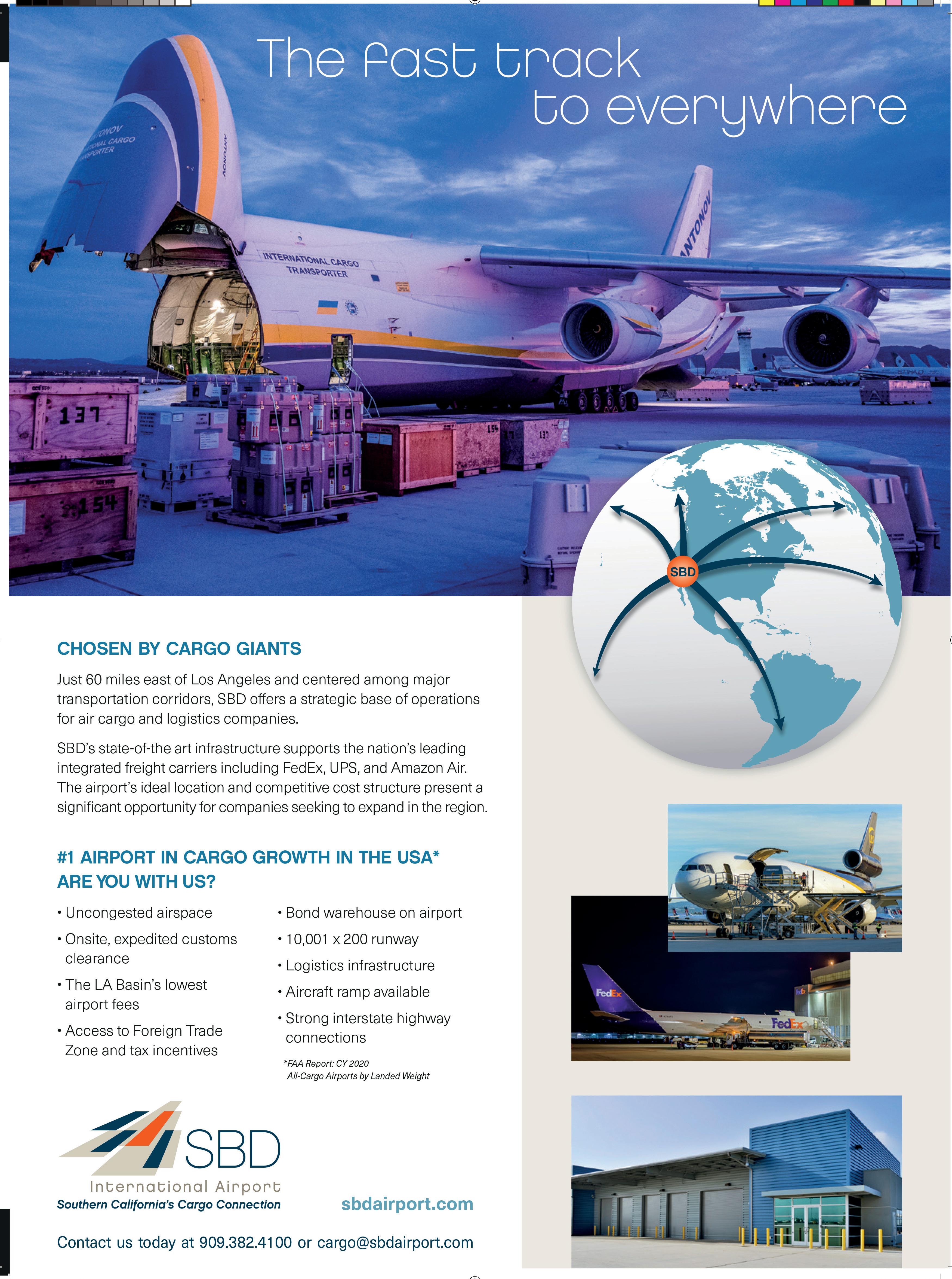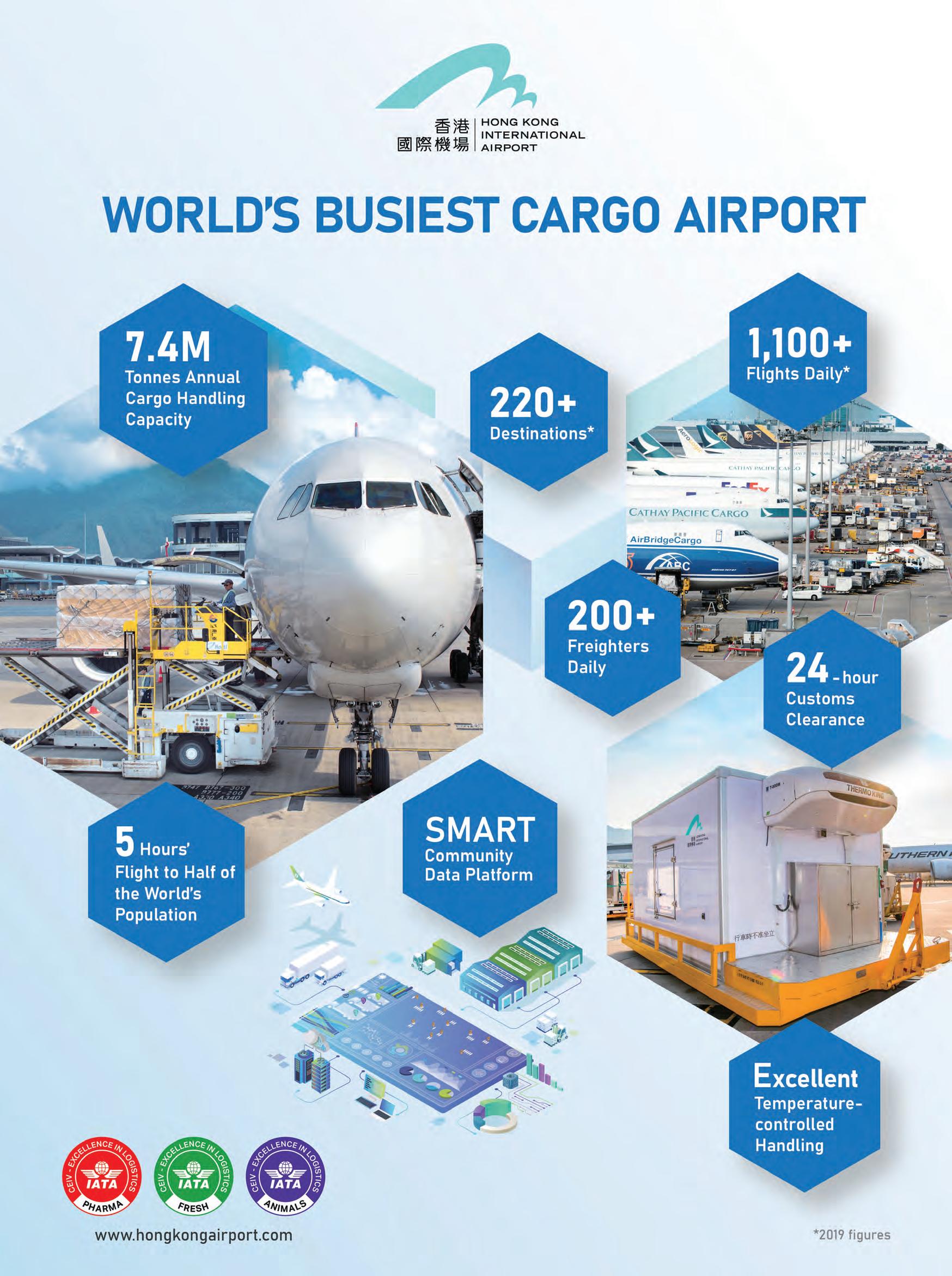
























The weekly newspaper for air cargo professionals


































When the A-Z Group, which readers will now know as Azura International, commenced operations in 1993 its prime objective was to become the leading provider of data and information to the global air cargo community. This ambition was quickly achieved through the A-Z Worldwide Airfreight Directory. In an age before Google, this quickly became the industry’s principal reference source. In such a fast moving industry, it rapidly became clear that news updates and information needed to be disseminated much more quickly than through existing media channels of the late 1990s. That was the spur for the launch, in May 1998, of Air Cargo Week which still remains the only weekly newspaper
for the world’s airfreight sector. It continues to be delivered in both traditional printed form as well as a digital format.
In the time we have been published, our industry has undergone a quarter of a century of dramatic change. This has embraced major technological advances as well as overcoming significant challenges. Throughout that time, Air Cargo Week has unfailingly supported the industry and steadfastly remained a respected voice of airfreight across the globe.
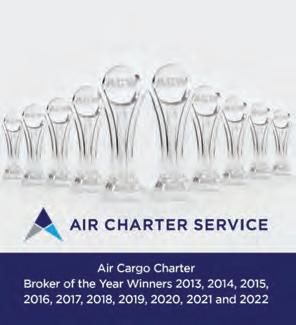
The development of the publication in all of its various aspects has been one of the most fascinating experiences of my sixty-year career in the air cargo sector. I am proud of our team’s commitment over the years for all that has been achieved. This has included digital transformation, the Air
Cargo Week World Air Cargo Awards, Air Cargo Week Daily News and the encouragement of new talent.
None of this would have been possible without the industry’s ongoing support and encouragement, so we wholeheartedly acknowledge those companies and individuals who have become stakeholders in the newspaper from around the world - our advertisers, contributors, partners and users. Thank you.
In a constantly changing world, we have exciting plans for the future and a determination to remain an integral part of the global air cargo community. With an enthusiastic, creative and innovative team and inspired leadership, we naturally and easily look forward to being with you into the next twenty five years.
THAT WAS THE AIRFREIGHT YEAR THAT WAS ... AIR Cargo Week was launched in May 1998 so it could be made available at TIACA’s 18th International Air Cargo Forum held ...
PAGE 2
WHAT THE INDUSTRY THINKS ...
“I was not aware of your 25th birthday; fantastic congratulations on this! We need a regular source for global airfreight ...


PAGE 6

A TALE OF TWO ALLIANCES ...

Talking cargo with Uncle Sam. The UK’s five largest all-cargo airlines: Air Foyle, Airfreight Express, Atlantic Airlines, Channel ...

PAGE 10
ACW MILESTONES IN THE TIACA HALL OF FAME ...
THE International Air Cargo Association (TIACA) opened its air cargo Hall of Fame the year before ACW was launched ...
PAGE 22
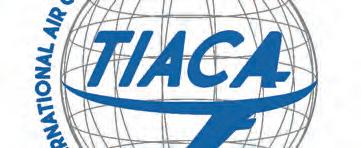


AIR Cargo Week was launched in May 1998 so it could be made available at TIACA’s 18th International Air Cargo Forum held in Paris that year. The stories that led the first issue, Volume 1, Number 1, of May 1 were the machinations behind the Delta Air Lines and Swisscargo alliance, the latest between European and American carriers and parcel carrier TNT launching a new corporate identity.
Here are twenty-five interesting facts to celebrate ACW’s launch year:

1. ACW launches
The air cargo media welcomed ACW as a new player that immediately set the bar high for news and feature writing. Launch editor Andrew Baker worked with a London design agency to get the look spot-on from the start. He headed up a staff of 18 on the newspaper.
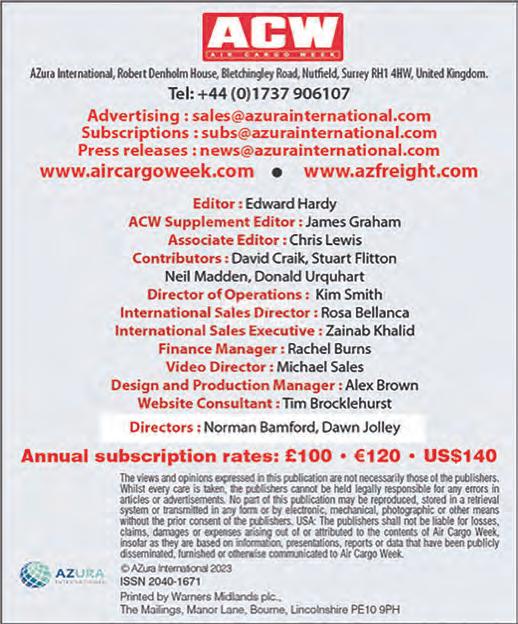
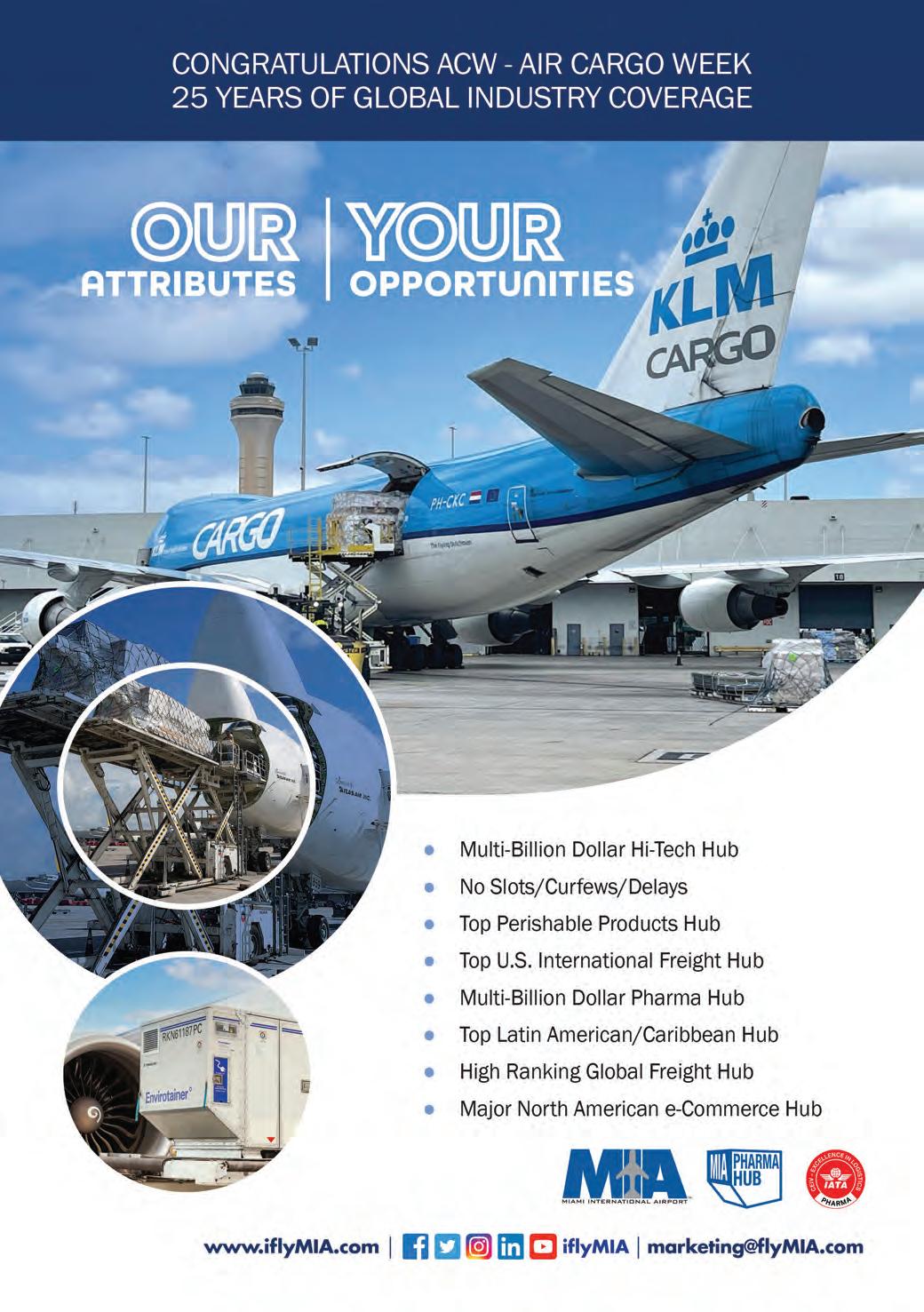
2. US Airways flies back
US airfreight legend Stephen Wolf restarted US Airways, formerly USAir, trans-Atlantic services between the UK and US. The re-branded US Airways started to operate daily wide-body Boeing 767-200ER services between London Gatwick and Philadelphia as well as Chicage. Both services were operated by aircraft with extra-large forward cargo doors measuring 167cm x 349cm, fitted at a cost of $4 million per aircraft.
3. Goodbye, Kai Tak
Air cargo operations in Hong Kong, then a British colony, changed overnight when Kai Tak Airport closed at 01:28 July 2, 1998 with the lights of its 13/31 runway being switched off. Operation of the new $4.8 billion Hong Kong International Airport at Chek Lap Kok commenced the same day, with the first commercial flight landing at 06:25 later that morning. There were a series of glitches involving air cargo at the opening that were resolved after six months as the airport started to operate normally.
4. Cloak and dagger airfreight
In a dry description Southern Air Transport (SAT) was a then51-year old cargo airline based in Miami, Florida. It was better known, in a very badly kept secret, as a front company for the Central Intelligence Agency (CIA) and for its crucial role in the Iran-Contra scandal in the mid-1980s. In late 1998 it tried to merge with other aviation companies, but it filed for bankruptcy on October 1 in Columbus, Ohio.
5. Cargo not guilty
Dangerous cargo was initially suspected in the bringing down of Swissair Flight 111, a scheduled international passenger flight from John F. Kennedy International Airport in New York City, United States, to Cointrin Airport in Geneva, Switzerland. It was carrying currency, diamonds and jewellery, along with a painting by Pablo Picasso, in its cargo holds. Investigators ultimately identified evidence of arcing in wiring of the in-flight entertainment network as the major cause of the tragedy.
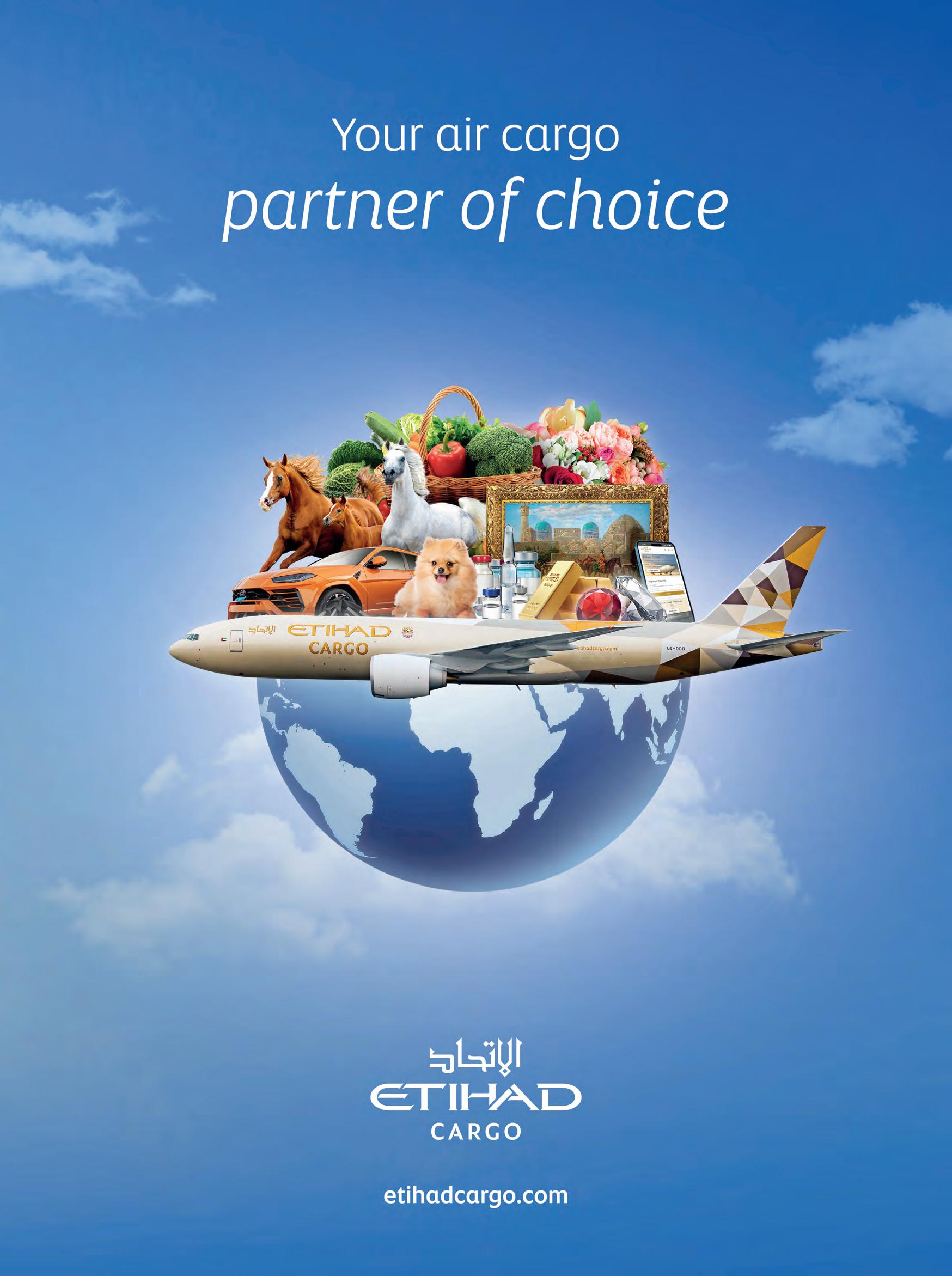
6. 42 names DCA after 40 President Bill Clinton signs legislation changing the name of Washington National Airport in Arlington, Virginia, to Ronald Reagan Washington National Airport. It is Washington DC’s secondary airport and handles mainly domestic and regional passenger and cargo services.
7. TWA grounds last Jumbo
Trans World Airlines retires the last of its Boeing 747 airliners, making the Boeing 767 its main intercontinental aircraft. In January 2001, TWA filed for a third and final bankruptcy and was acquired by American Airlines. American laid off many former TWA employees in the wake of the September 11, 2001, attacks. TWA continued to exist under American Airlines until July 1, 2003.
8. Hunting no more
In June 1998, the Hunting Group sold its aviation arm, Hunting Cargo Airlines, to a joint consortium of CMB Compagnie Maritime Belge and Safair (part of the Imperial Group) and the
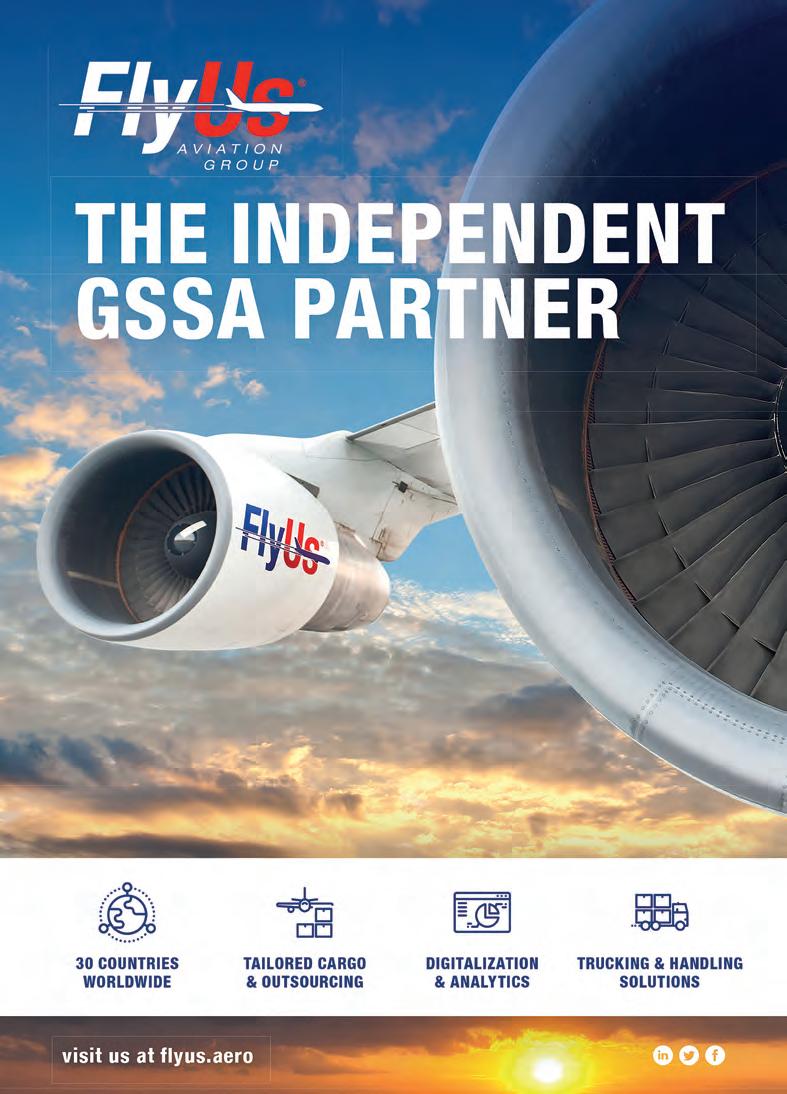

airline was rebranded Air Contractors.
9. It’s cold up North Air Alaska Cargo ceases operation after just 12 years of operation.
10. In the money AMR Corp. wrapped up a record year, netting $1.3 billion in 1998, up 33.4%; the results include American Airlines, American Eagle, Sabre and the management services group. Delta was among the record breakers: Its net income for 1998 was $1.8 billion, up 11%.

United’s net earnings were $821 million for 1998, down from $949 million, but the results were skewed by nonrecurring charges.
11. Happy birthday, again
Nargis Bhimji of Karachi, Pakistan, spends her birthday flying on commercial airliners from Karachi to Singapore and then on to San Francisco, California. The time zone change along the way stretches the day out to a length of 35 hours 25 minutes, allowing her to set the
record – recognised by Guinness World Records – for the longest birthday in history. Her record will stand until August 2014.
12. CCA launches in China
China Cargo Airlines (CCA) launches as a cargo airline with its head office on Hongqiao International Airport in Shanghai, People’s Republic of China. It is China’s first all-cargo airline operating dedicated freight services using China Eastern Airlines route structure. Its base is at Shanghai Hongqiao International Airport, with a hub at Shanghai Pudong International Airport. In 2011, China Cargo Airlines merged operations with Great Wall Airlines and Shanghai Airlines Cargo. The two airlines were rebranded as China Cargo Airlines progressively.
13. Bangladeshi first
Bismillah Airlines is a cargo airline based in Bangladesh that launches as the first international cargo carrier of Bangladesh.
14. Connecting Nigeria
Allied Air, a cargo airline based in Lagos, Nigeria starts to operate scheduled and charter services in Nigeria and throughout Africa. Its main base is Murtala Mohammed International Airport, Lagos.
15. Lights, camera, action
‘Airline’ was a British fly on the wall television programme produced by LWT that showcased the daily happenings of passengers, ground workers and flight crew of Britannia Airways (series 1) and later EasyJet (from series 2). The show was broadcast between March 1998 and January 2007 on ITV, and as of February 2019, CBS Reality. The programme’s success sparked a US version of the series, following American low-cost airline Southwest Airlines.
16. Vive SYCAFF
France-based airline lobby group Syndicat de Compagnies Aeriennes de Fret de France (SYCAFF) is established with the aim to analyse and disseminate information of an economic and regulatory nature to its members. The association intended to best defend the interests of the airfreight sector with the public authorities. Its activities would be based on the commitment and the work provided by the commissions.
17. Going Dutch for airfreight
Newly-formed Dutch cargo airline Jet Link Holland that aimed to operate regular Airbus freighter flights to and from the Middle East/ North Africa starts services. Jet Link Holland was set up by Amsterdam Schiphol-based general sales agent Jet Link International and took delivery of an A300B4 freighter being converted from passenger configuration in the UK. A second aircraft was expected later in the year. The airline was declared bankrupt in June.
18.
The decision by the government of Myanmar/ Burma to order almost all integrators operating in the country to cease operations did not trouble the companies involved. Eleven courier companies have been excluded, with the notable exception of DHL which was in a joint-venture with Myanmar Posts and Telecommunications for two years.
19. Whither HeavyLift?
Rumours again started circulating that UKbased carrier HeavyLift Cargo Airlines is back on the market. Suggestions are that current bidders include two UK companies: aviation services group Air Foyle and air charter broker Air London. HeavyLift had an operating agreement with Russian airlines which saw the Ilyushin IL-76s operated in full HeavyLift colours. The largest type operated by HeavyLift was an Antonov AN124 that was owned and operated by the Russian airline Volga-Dnepr. The airline ceased operations on Friday 13th September 2002.
20. Will the AN-70 fly?
CIS and Russian airfreight operator AirRep Group evaluated the new Antonov AN-70 cargo aircraft with its long-term commercial partner Inversija Cargo of Latvia, said Colin Martin, managing director of LGW-based AirRep. The turbo-prop has four contra-rotating propellers with a range of 7,000 km (3,780 nmls) and a payload of 50 tonnes.
21. Cargo theme for Sydney ‘98
Air cargo was the theme of the ACI World/Pacific conference held in Sydney, Australia that year.
22. Report delayed
The publication of a Dutch air cargo industry follow-up report to 1997’s ‘Give Cargo Some Air’ was now due to come out this summer. The manifesto was widely seen at the time as an air cargo industry response to the growing environmental and social pressures on their business in the Netherlands and future development plans – for example, tighter restrictions on night-time flying at Schiphol.
23. Time to go
Delta Air Lines executive vice president of marketing Robert Coggin (61) retired after being at the airline for 42 years. He had joined in 1956 when the carrier had 58 aircraft; he leaves when the carrier has 560 aircraft. In his time, revenue went from $68 million a year to some $14 billion.
25. On-line news service complements weekly ACW
We quickly identified that the busy airline executive, while welcoming the arrival of Air Cargo Week, also sought to make use of the latest technology to keep up to date with air cargo information. This is why we launched an Internet news service that continues to this day at www.aircargoweek.com, launched at the Paris ACF later that year.

You’re not welcome anymore
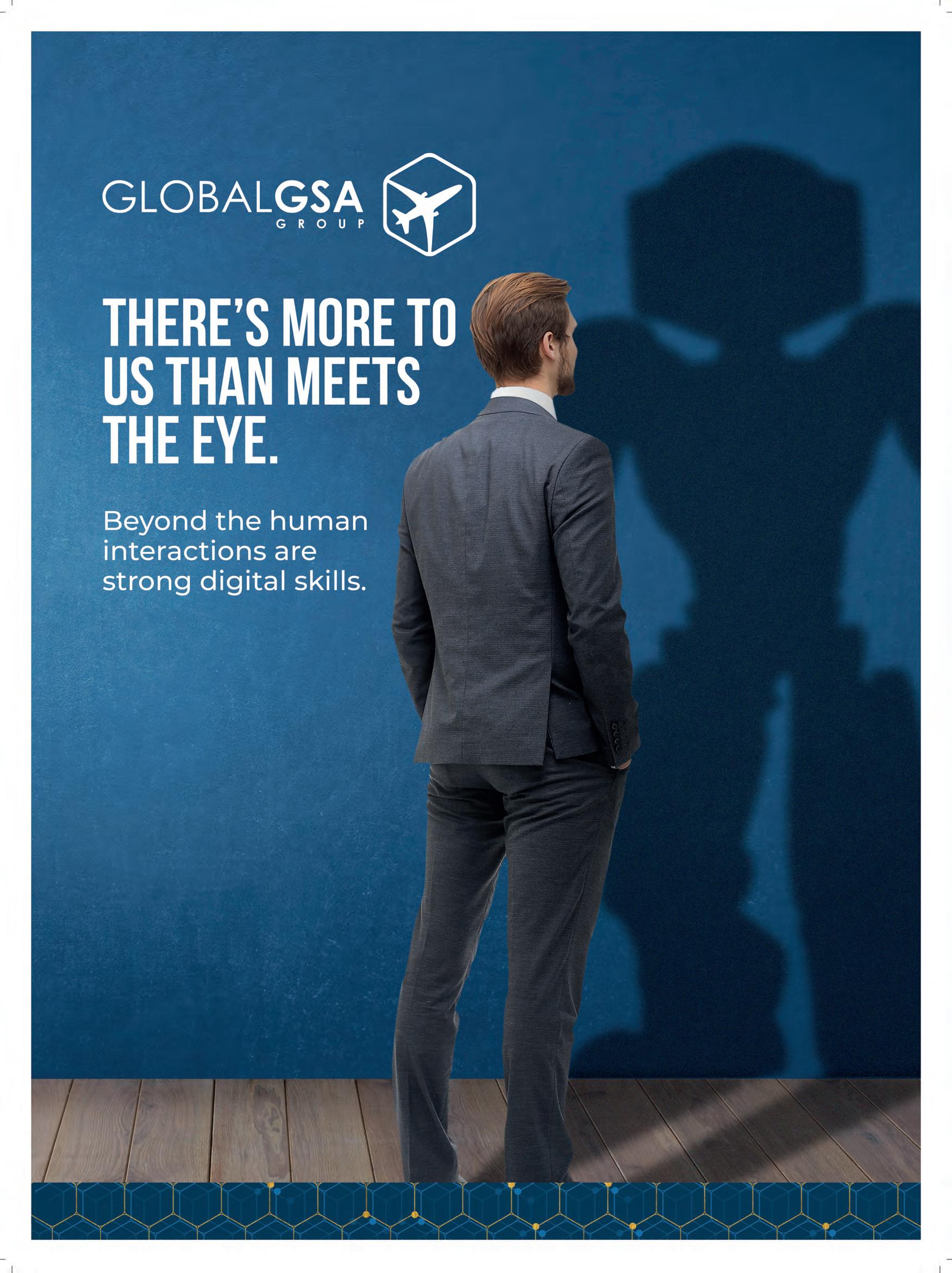
“I was not aware of your 25th birthday; fantastic congratulations on this! We need a regular source for global airfreight focused information – and ACW is doing this excellently – in a daily newsletter and weekly newspaper, as well as organising regular industry events, where the industry can meet each other very easily and efficiently, and the exchange of ideas.”
Dirk Hazenoot, vice president sales and marketing, EuroCargoAviation“Everyone at Hactl extends their congratulations to Air Cargo Week on attaining its quarter century this year. Through good times and bad, you have played a significant role in
keeping our industry informed since 1998. We look forward to continuing our friendly and productive relationship for many more years to come.”
Wilson Kwong, chief executive, Hong Kong Air Cargo Terminals Limited (Hactl)

“Congratulations to Air Cargo Week on celebrating its first quarter of a century of delivering news and views from this industry to a global audience. Delivering the message about the crucial role air cargo plays in everyone’s lives is important work, and we look forward to continuing to share our perspective with your team for many years to come”
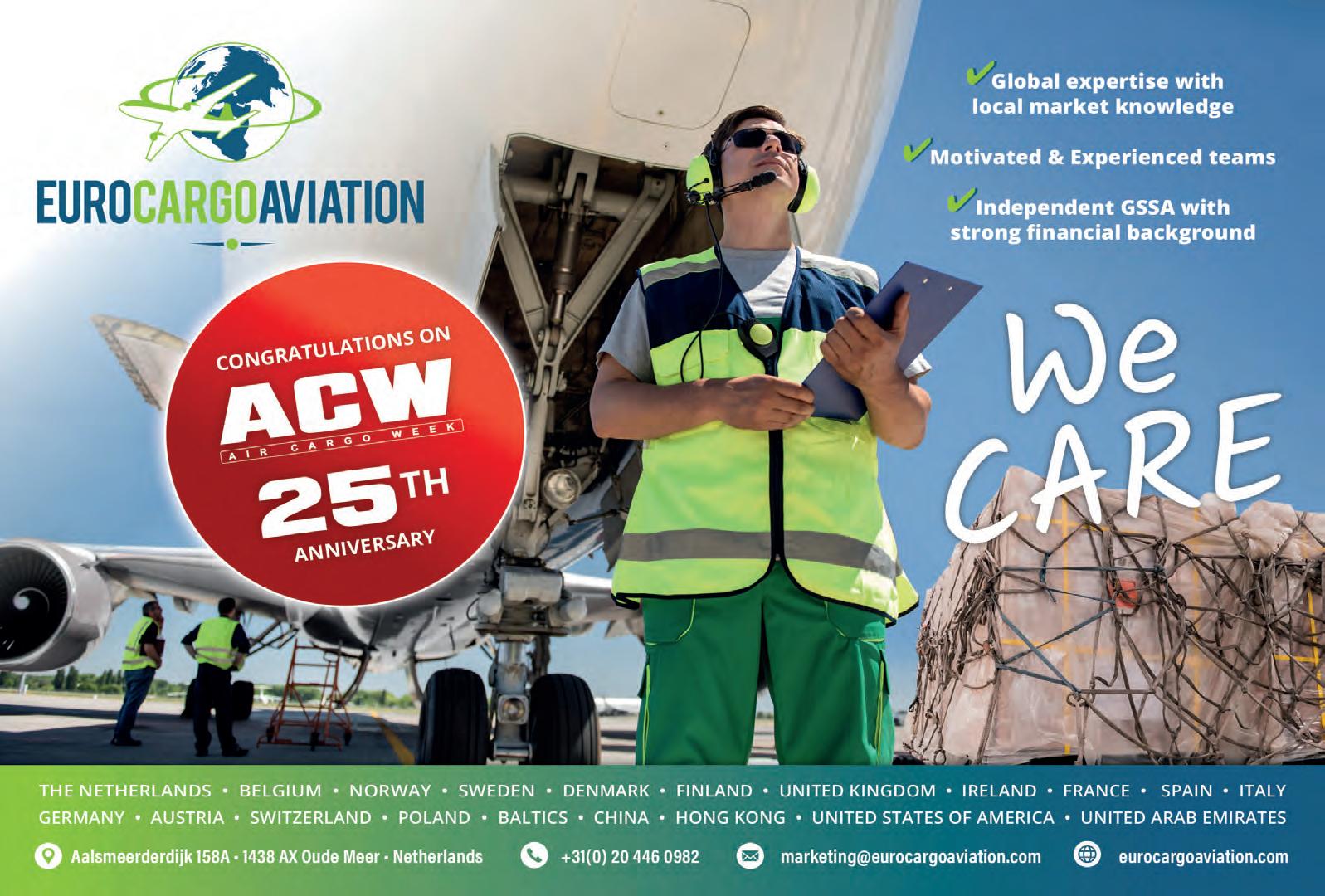
Greg Schwendinger, president – American Airlines Cargo

“Hearty congratulations on a quarter century and wishing you the next similar milestones serving this great industry with timely, insightful, thought provoking articles and conversations. While covering this industry, I would urge you to constantly look ‘outside’ and bring perspectives which could be adopted in our industry instead of marginal improvements through inside players as the only option. Hence, your challenge is to identify such opportunities and bring it to your readers regularly. I wish you all the best.”

 P Balasubramanian, founder & CEO, ACCIS (Air Cargo Consultancy International Services)
P Balasubramanian, founder & CEO, ACCIS (Air Cargo Consultancy International Services)

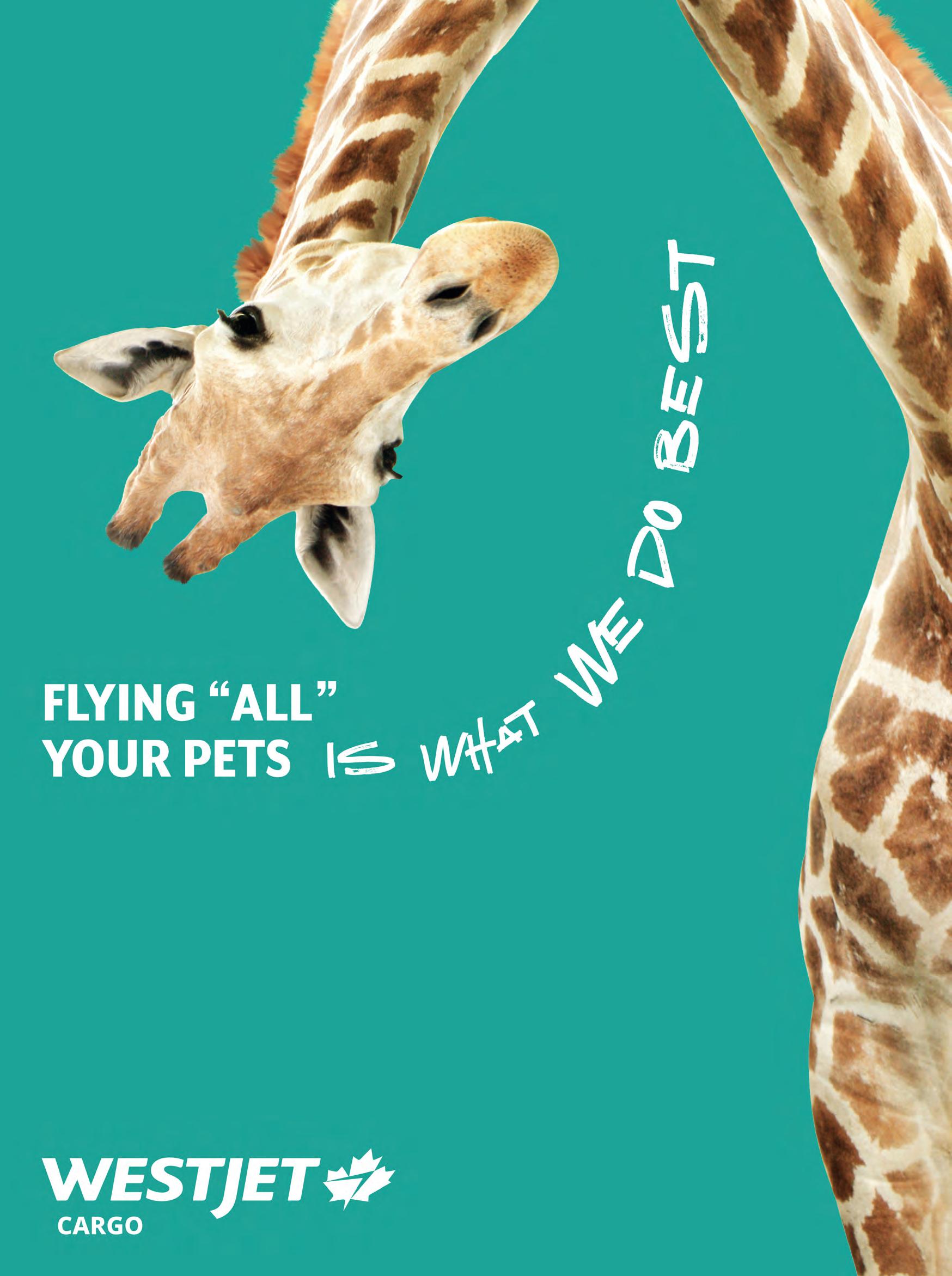
As he approaches his own 40th anniversary in airfreight, Glyn Hughes, the colourful director general of The International Air Cargo Association (TIACA), looks back at a quarter of a century reading ACW.

In 1998, the industry stalwart Hughes had already served a decade-and-a-half in airfreight. He recalls: “I joined the air cargo industry in 1983, so was already 15 years into my career when ACW launched. I was working for IATA, based in the UK, at the time. The head of IATA CASS at that time was a wonderful man, Colin Stevenson, who was passionate about the industry and he read every publication and news journal we could get into the office.”
As an avid reader of the aviation freight media, he is keen to acknowledge the milestone ACW has reached. He notes: “Industry news about organisations as well as independent thoughts about key issues and challenges; we are very fortunate in the air cargo industry to have great trade media and I’m very pleased to place ACW absolutely in that group. I really enjoy reading the content.”
He easily recalls: “The nice celebration and featured supplement” on the 20th anniversary of Air Cargo Week. He says: “The air cargo industry touches every corner of the globe with every week bringing new challenges and every region experiencing new opportunities. It is imperative we all stay in touch as much as possible with what’s going on elsewhere. ACW does a great job of bringing together the key bits of information we all need.”
In terms of readership, Hughes is proud that 100% of TIACA’s Europe-based staff read Air Cargo Week. He adds: “Although number-wise, this adds just one to your readership numbers!”
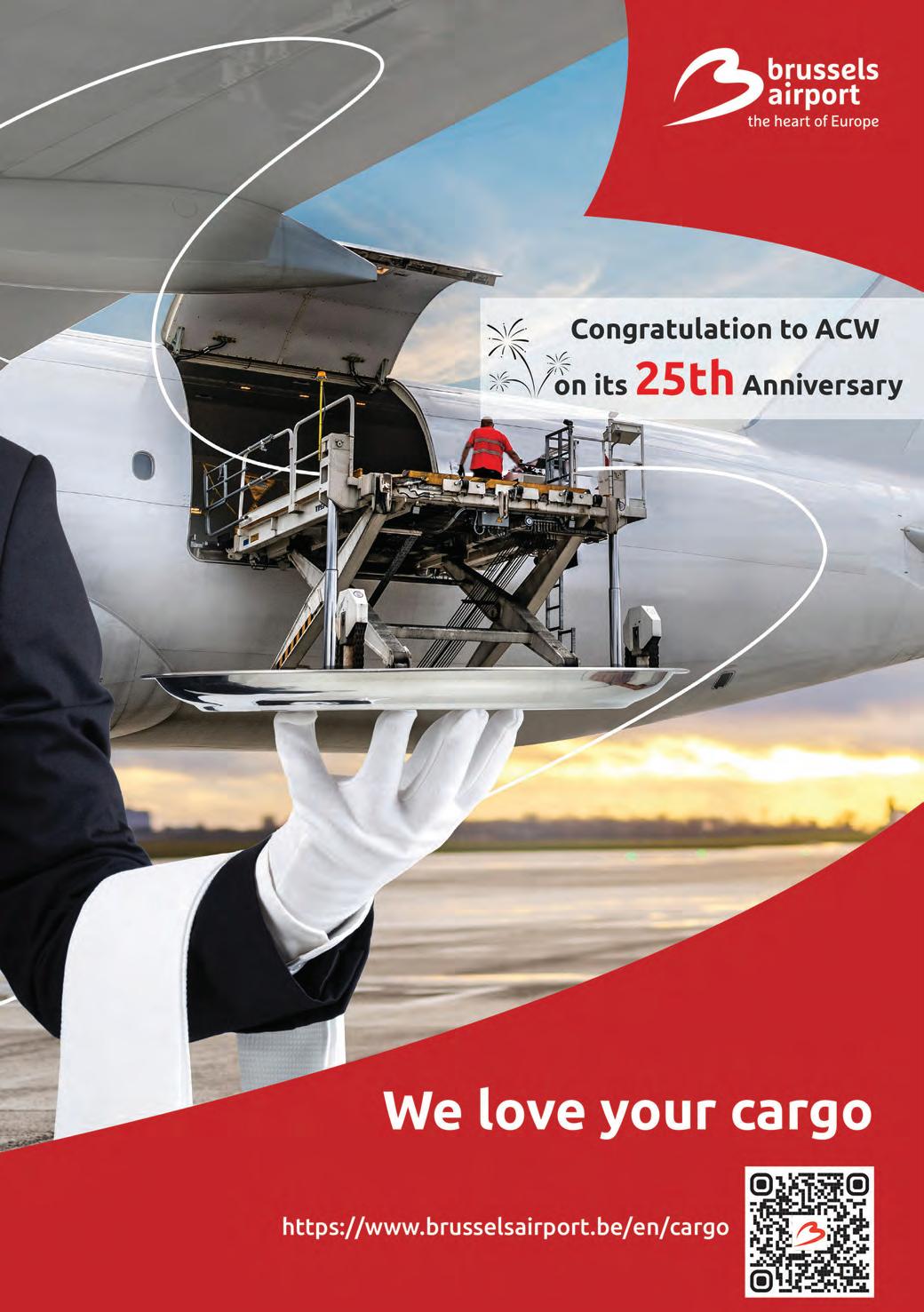
Air Cargo Week was launched in the penultimate year of the 20th century. Hughes can easily recall his involvement in airfreight in 1998 in terms of office technology. He says: “I remember getting my first cell phone around the time ACW launched, but it was purely for emergency purposes only. So business was conducted via landlines. We had e-mail but still used telex machines for urgent notices. We also still used a dot matrix printer: your younger readers will need to Google this. Work from home was impossible as connected systems and infrastructure were not yet part of working life.
“I was working for a trade association 25 years ago and whilst still working for a trade association it’s a different one. The industry has changed significantly during this past quarter century but some things have remained the same. The industry needs standards to ensure cargo is moved safely, securely and efficiently. Whilst the commodities moved have changed and the aircraft that move them have changed as well, the core industry standards are still very similar, although updated.
“Industry settlement 25 years ago was mostly done via the IATA CASS system which is still in operation today applying very similar rules, yet the world has moved significantly in FinTech so perhaps there is an opportunity to do something newer and more modern going forward.
“But whilst processes, systems and regulations help the cargo move, this industry was and remains about the people that make a difference. The air cargo industry impacts lives, economies and global society like no other industry and it is only through the dedicated service of the great men and women of air cargo that makes this happen.”
In terms of world events over the last 25 years - 9/11, Iraq war, financial crash of 2008, Covid-19, war in Ukraine, oil price shock, global inflation in 2022 - which one does Hughes think has had the most impact on airfreight?
After considerable consideration, Hughes answers: “That’s a fascinating question, but almost impossible to answer. It’s like saying who’s the greatest footballer or boxer of all time. As the world changes, the impact of events often gets put down to creating a new normal without recalling the devastating impact of the day. 9/11 for example changed the way passenger and cargo security is looked at and how risk-based measures are now applied. So the effects can still be felt 22 years later. Many of the other world events had a big impact but didn’t translate into longer term implications.
“Covid on the other hand, whilst still fresh in memories and was hugely devastating for global society with over 760 million cases and nearly seven million deaths, did allow the air cargo industry to demonstrate its true value and worth. Delivering life-saving PPE and equipment to ultimately leading the way in global vaccine distribution air cargo showed it was more than just moving boxes. The value of air cargo to airlines was also an unexpected outcome with many carriers now adopting a more balanced portfolio of services, including some carriers returning to operating freighters in their fleet.
“So whilst many events have impacted this industry, each event has brought the best out of air cargo with adapted solutions. We try together and we succeed together.”
Our landmark milestone

Hughes has taken the opportunity to look forward to the next landmark ACW milestone: the 50th anniversary in 2048. He says: “Just to say well done and I look forward to the next 25 years. Although I hope to be reading most issues electronically from a hammock on a deserted beach somewhere!”

AIR Cargo Week may have been launched while Bill Clinton was in the White House, but it was not until Barack Obama resided at 1600 Pennsylvania Avenue that Steve Townes first read the newspaper. He took time from what he described as “lots of things [in my] jamming work schedules this past week” to share his reminisces on the newspaper.
Townes, the popular president and chief executive office South Carolina-based, ACL Airshop recalls: “I first started reading it in 2015 when arranging the acquisition of ACL Airshop. I scoured through lots of back issues also, as part of due diligence on the deal.”
The following year, ACL Airshop was acquired by Ranger Aerospace and four large institutional co-investors. Ranger Aerospace was a well-known acquirer and builder of aviation and aerospace enterprises and, commencing in early 1997, it had strategically expanded multiple large-scale growth platforms with superior operational and financial results. Last year, it hosted a business reception called “A Celebration About People” to highlight its own 25 years milestone. Ranger has built several separate platform companies to over $100 million revenues each thus far in its colourful 25-year history and has managed as many as 4,250 personnel at 56 airports.”
From the trade press
Townes is a very busy executive in a key role within the business he oversees. His time is precious and he looks to the air cargo media as a source of information and market intelligence. This, of course, includes Air Cargo Week.

He says: “From the trade press, I look for factual articles with a bit of depth, minimal “fluff” and when possible some sort of human interest angle, highlighting something new and interesting, not just short clips or blather. ACW consistently delivers that way.”
Just a few years after he started reading ACW, Townes would have received the 20th anniversary issue. It is perhaps not surprising, given the volume of literature and material that crosses his desk on a daily basis, he is not 100% certain he read that special issue but: “I’m sure I saw the 20th anniversary issue, but I’d have to pull it up from your archives to refresh specific impressions. I probably sent congratulations to Azura since I faithfully read ACW every week to stay abreast of industry developments.”
In general, he considers ACW continues to do a very good job of reflecting the air cargo industry worldwide. “[It is] a very good radar on the whole global ecosystem.”
ACL Airshop’s 240 employees, with 25 in key management positions, provide a good source of readership of ACW, meaning that advertisers who wish to reach ACL Airshop make the right decision when they chose the publication.
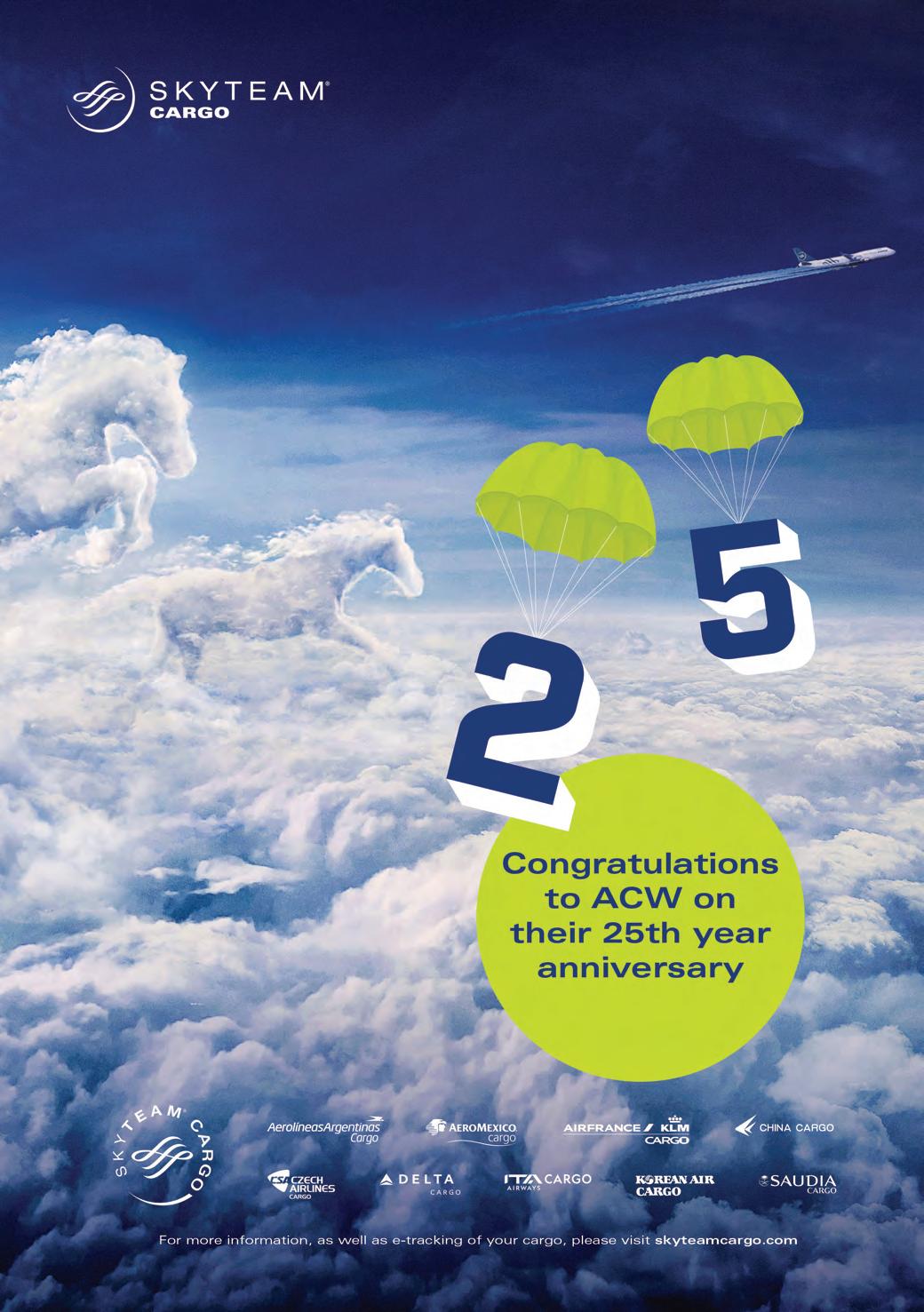
He says: “I estimate that about 50 read ACW, plus we share the print versions in reception and conference areas.


There are less than a handful of air cargo-specific worldwide publications that collectively form our regular pulse-touch on the industry. ACW is certainly in that small top group, and is exemplary in every way.”

The UK’s five largest all-cargo airlines: Air Foyle, Airfreight Express, Atlantic Airlines, Channel Express and HeavyLift came together in 1998 to form the British Cargo Airline Alliance (BCAA). Its principle purpose was “to advance the interests of the UK’s cargo airline industry in bilateral negotiations with the US.”
In a presentation to the Select Committee on Environment, Transport and Regional Affairs at the House of Commons, the BCAA outlined who it was and what it did. The report’s author wrote: “We operate freighter aircraft for a wide range of European customers and airlines including the Post Office, DHL, British Airways, Lufthansa and KLM. BCAA members now operate more than 75 aircraft, offering 1.2 billion tonne kilometres of capacity annually and providing direct and indirect employment for approximately 4,000 people.
“The BCAA advocates ‘Truly Open Skies’ and liberalisation in all aviation markets across the world. The establishment of an open EU market has seen our members establish more than a 50% share of Europe’s independent cargo airline fleet. Equal access to the US market for the British cargo industry would provide many further economic, employment and investment opportunities for the UK economy.
“The BCAA is recognised as the trade association representing the all-cargo aviation industry by DETR and DTI. It works closely with UK and European regulatory authorities, campaigning in the UK, Europe and the US for a level playing field, fair competition and liberalisation on a reciprocated basis.”
The BCAA’s secretary was a member of the UK DETR negotiators’ delegation and has attended all rounds of UK-US talks in the past five years.
The BCAA was fully behind the UK government’s position that “reciprocity must form the basis of air service negotiations with all countries, including the US.”
It would be wrong to “give in” to the Americans’ protectionist negotiating strategy and seek a “quick-fix” political solution that does not address the fundamental imbalance in opportunities available to UK and US airlines in the UK and US markets.

The $19.7 billion US air-cargo market was protected and closed
by legislation to BCAA members. British carriers were not allowed to fly cargo services within the United States. Airfreight to, from and within the US represented over 40% of the world’s cargo traffic. The failure to conclude a reciprocal aviation agreement with the US Government had a substantial negative impact on the potential development of the UK cargo airline industry, believed the BCAA.
World airfreight was growing at over 7% per annum. Boeing estimated that in the period up to 2017 there would be an additional 1,000 wide-body freighter aircraft needed to accommodate this extra demand. With truly open skies, BCAA members would be able to secure a proportion of this additional fleet, creating new UK jobs, investing in additional aircraft and earning more overseas revenue.
“Until UK cargo airlines are provided with access to the US market and the ability to compete effectively with American freight airlines, our further growth is constrained by artificial barriers,” the BCAA states.

The US protectionist policy was implemented through the policies of Fly America for passengers and CRAF (Civil Reserve Air Fleet) for cargo. The US government, including the United States Postal Service, only allowed US carriers to tender for its flights. But US cargo airlines were allowed to compete for UK and European government contracts.
The US Government’s template for Open Skies was not in the interests of UK airlines or customers, as it is not based on reciprocity and would create far greater opportunities for US airlines. Essentially, the US version of Open Skies is protectionist and would “undermine” the UK’s all-cargo aviation industry’s ability to compete, resulting in a negative long term impact on British industries linked to the UK aviation industry, including regional airports and aircraft maintenance companies.
UK airlines operated within the European Single Market. “It is now our domestic market,” said the BCAA.
Within this competitive market, established only in April 1997, airlines from 15 countries could now compete freely for any business on any route. This had allowed UK companies to attract a significant share of the market, benefiting UK jobs and investors.
The US Government requested US airlines—not foreign airlines as these are excluded from the CRAF programme—to bid for contracts for the provision of cargo space and freighter aircraft. In 1997, contracts to the value of $334 million had been awarded under CRAF. Given the nature of many CRAF contracts, which paid airlines to provide standby and emergency capacity and can require little or no actual provision of services, the BCAA contended that this equates to a substantial state subsidy by the US to its airlines.
Against the advice of the BCAA and the wider UK aviation industry, in 1997 the UK government granted US freight carriers unilateral fifth freedom rights for cargo services from Prestwick
airport. Not only did the Americans fail to reciprocate this offer, but FedEx, the main beneficiary, had recently withdrawn from the airport completely.
Founded in 2000, today SkyTeam Cargo is the world’s only aircargo alliance. If history had been different, there would have been a second significant alliance in the air cargo mix.
In the April of the same year, two years after the launch of ACW, the WOW Alliance, peaking at four airline members, appeared on the scene. Initial members were SAS Cargo Group, Lufthansa Cargo and Singapore Airlines Cargo.
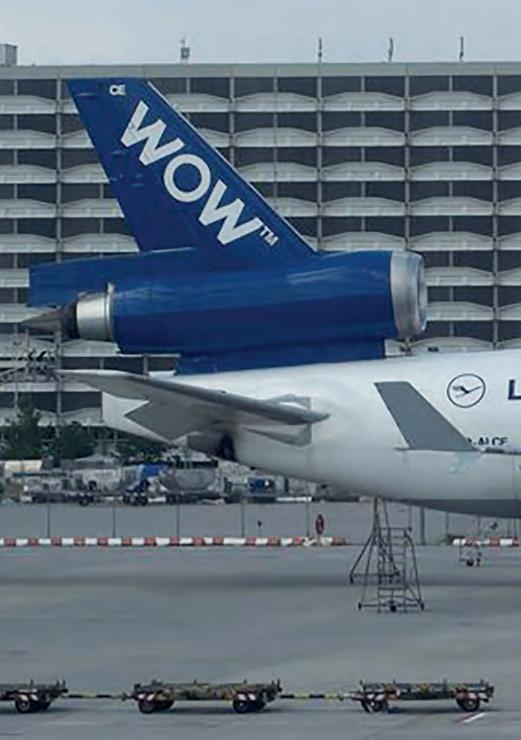

JAL Cargo joined the WOW Alliance in July 2002. This was the high water mark of the alliance as it was at its most active. According to CNN, at the time JAL Cargo joined, the WOW Alliance controlled 17% of the global freight market. It served 523 cities in 103 countries. WOW failed to ever recruit any US airline member.
Within a short-time, member airlines had started to compete against each other, rather than working together. The first to leave was Lufthansa Cargo just nine years later. In 2010 JAL Cargo left, having stopped operating cargo-only flights in 2009.
The two remaining airlines have washed their hands of the alliance. In contrast, SkyTeam Cargo has twelve member airlines.
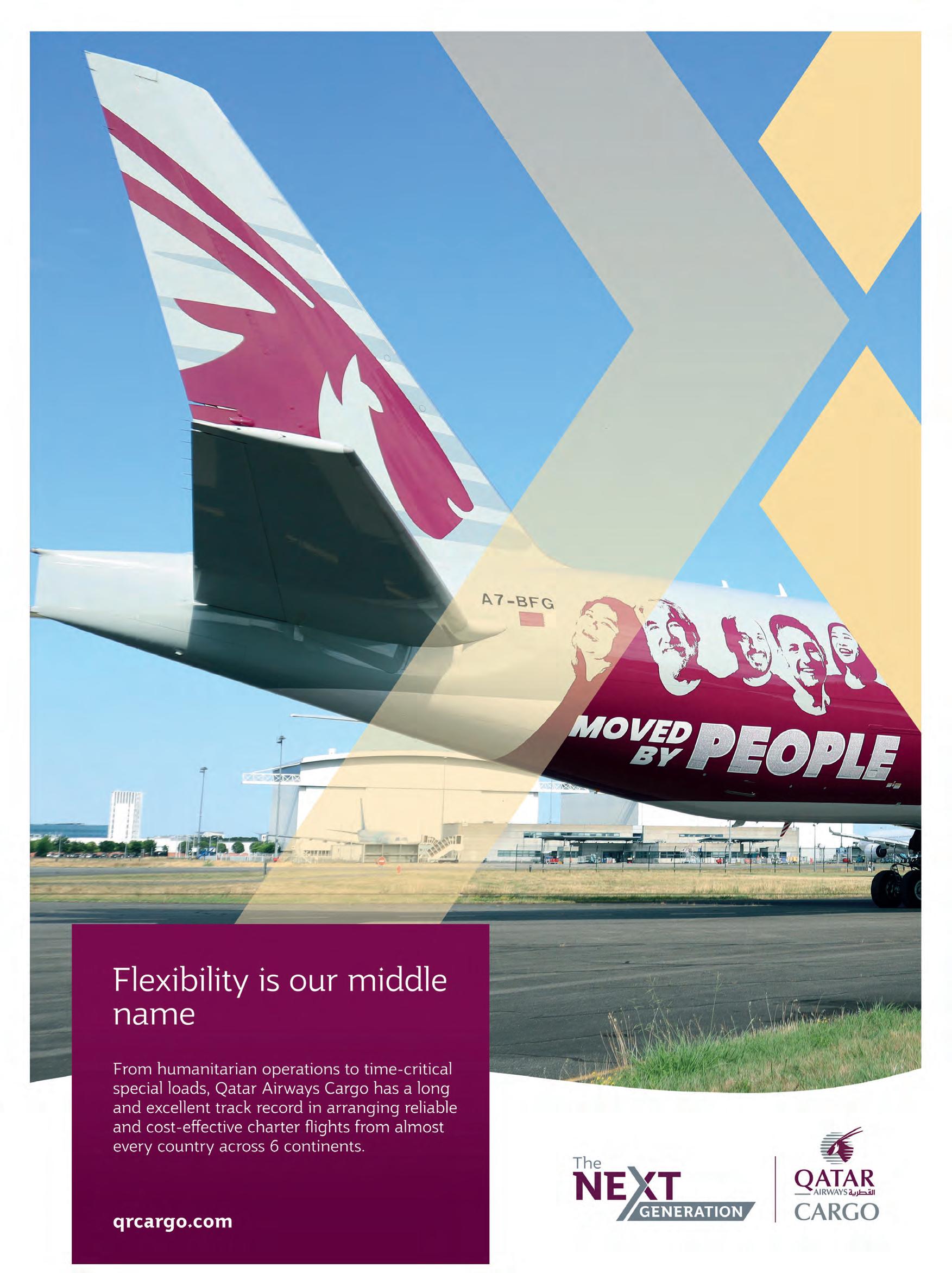
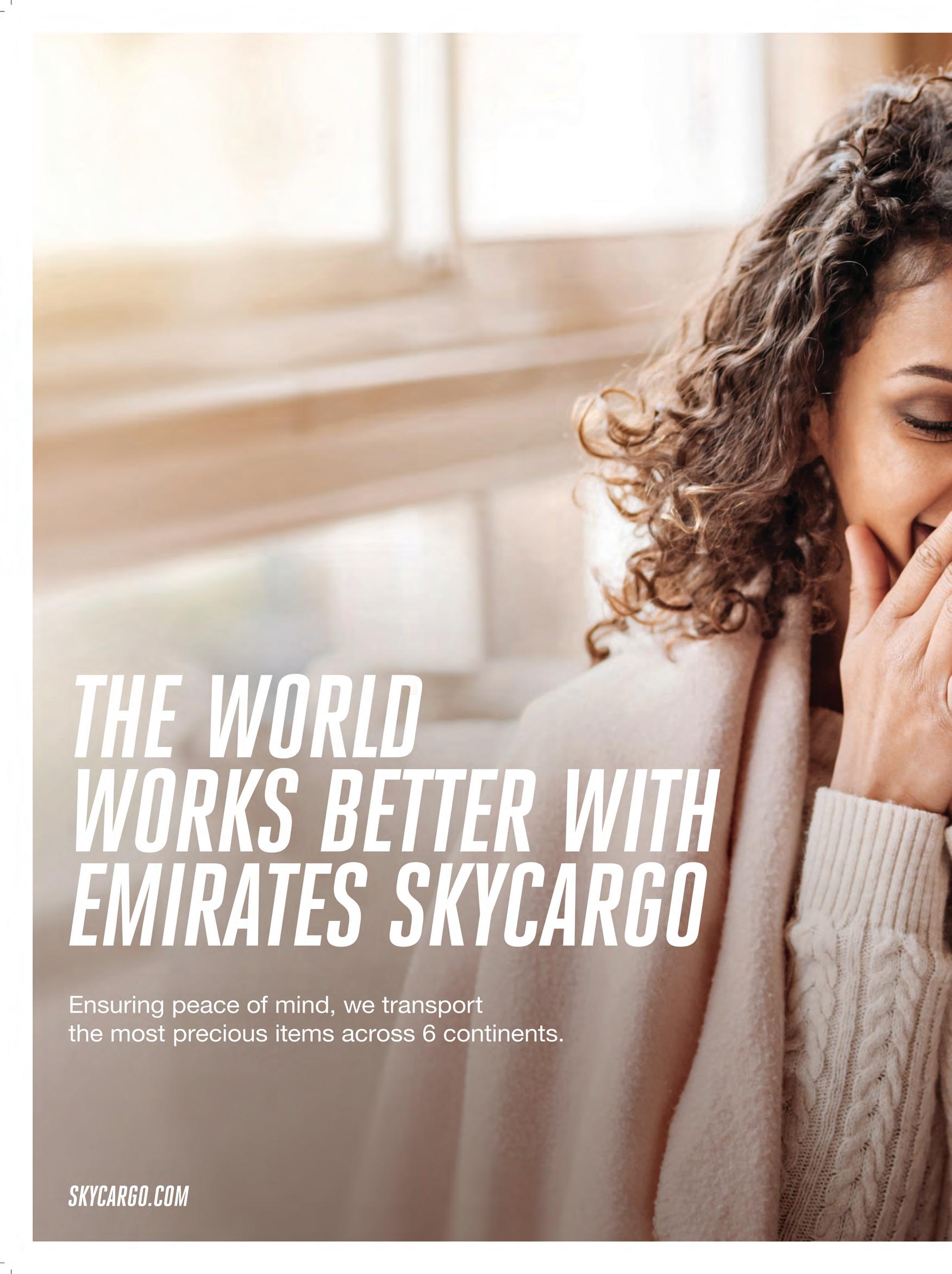

IF Adrien Thominet, executive chairman of ECS Group, had not had a significant career change around the time of the launch of ACW, we might now be talking about one of France’s leading sommeliers and wine merchants. He had been working in the wine trade until an encounter with someone working in freight enticed Thominet to swap careers.

He completed his entry-level move into freight around the same time he recalls seeing his first issue of Air Cargo Week. He says: “I saw the newspaper very quickly after I started in airfreight. I found it very interesting and was jealous about the companies I read about. I wanted ECS Group to be in it!
“It was super interesting and I used it to help me target business guys. It was like Time magazine for airfreight.”
The Flintstones
While many might recall 1998 in terms of office technology and think it was all about typewriters, fax machines and telex messages, Thominet would have dreamt of such modern equipment in his first days. He recalls: “We didn’t have fax machines or telex messaging. We were out of The Flintstones. We would write orders on pieces of paper and stick them to the wall. In fact, the fax machine was the best we had.”
He turns a slight wistful when he talks about how the industry has changed in the quarter century since he joined it. The very technology that has sprung up in airfreight since the 1990s – mobile telephones, e-mails, social media, online meetings, Track-and-Trace, even AI – has had an unintended consequence: a
loosening of personal contact in doing business that he laments.
“It used to be more hands-on. You would talk on the ‘phone, visit people in their offices, make face-to-face deals. Now, not so much.” In fact, the technology he believes was once meant to speed up connection now can serve as a gate-keeper, making personal contact very much more difficult.
He remembers reading the 20th anniversary issue and reflects that the newspaper, while young, was covering an industry itself not ancient. He reckons the industry has faced more change in the years between the two special supplements than ever.

When Thominet is asked which world events over the last 25 years in his opinion has affected airfreight the most, his response may surprise. Readers of Air Cargo Week over the last 25 years will have read about airfreight against a background of 9/11, the Iraq war, the financial crash of 2008, the global COVID-19 pandemic, the continuing war in Ukraine, 2022’s oil price shock and the global inflation that is affecting many businesses and consumers worldwide.

Thominet says: “I think the global financial crash of 2008 was the worst event for airfreight. Suddenly everything shut down. ECS Group management took a 30% pay cut to ensure our staff were paid through this time. After six months it was back to normal but it was the worst time.”
Horse we bet on
Thominet’s thoughts on our landmark milestone reflect the usefulness he considers Air Cargo Week has had over the years for Paris-based ECS Group. He says: “ACW has always been the best airfreight medium. The competition is no-where. It has always had a capacity for super journalism and it has always been very innovative.

“It is the clear leader in the market and its involvement with the Munich show has been outstanding. “This is why ACW is the horse we bet on for our advertising and marketing spend.”

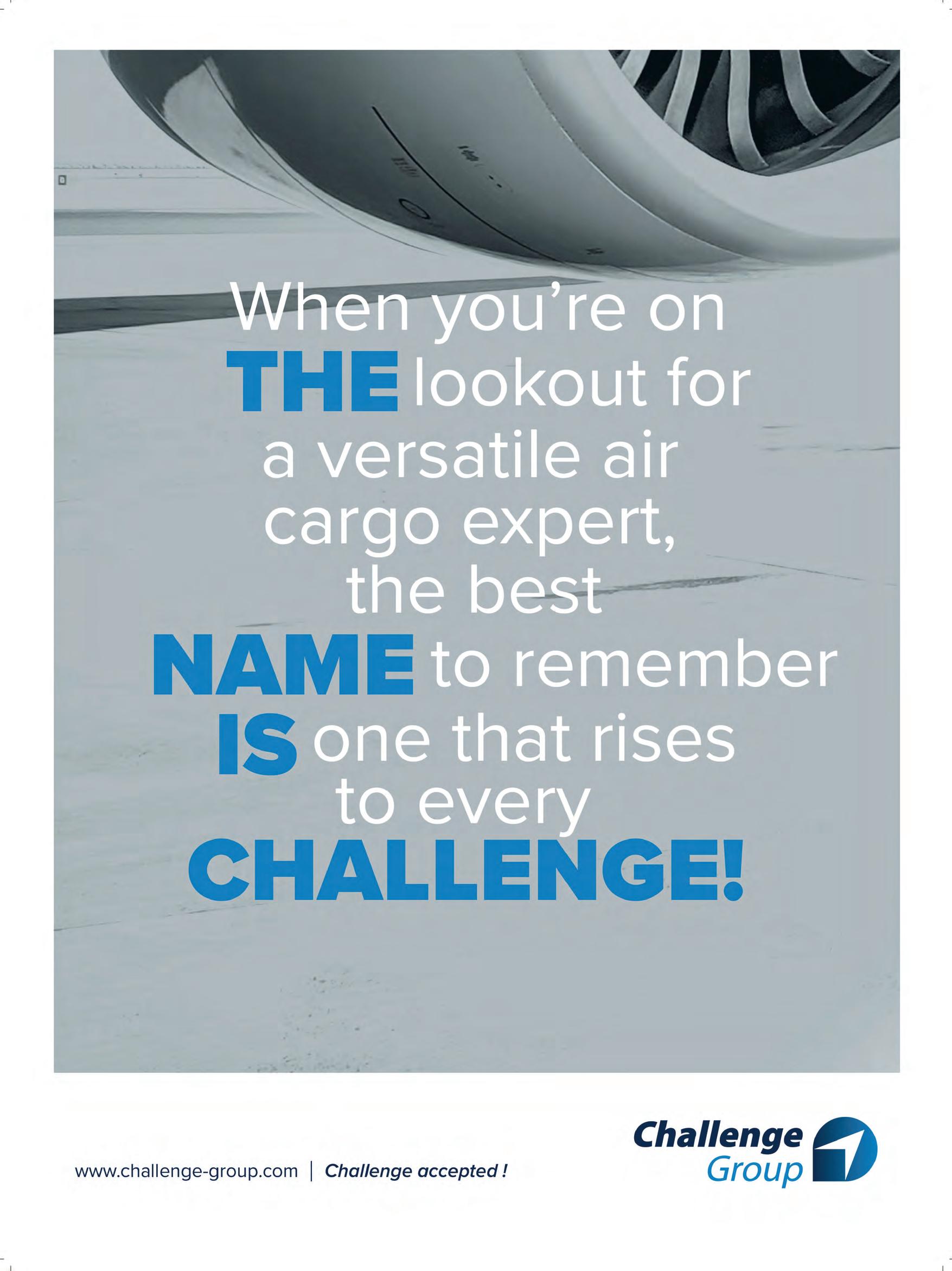
P Balasubramanian, founder and CEO of ACCIS (Air Cargo Consultancy International Services), took time from his busy schedule to reflect on 25 years of reading ACW in a career spanning back to the 1970s.

He says: “I was delighted to learn that ACW would be celebrating its Silver Jubilee! Incredible growth and qualitative presentations are always on display. It is a pleasure and privilege to be part of the 25th anniversary issue.”
Bala has been associated with the aviation industry since 1977. His initial exposure was to the passenger as well as cargo side of the business in addition to ground handling area. In those days, the Air Waybill was issued manually – usually through a typewriter! Flight information used to be exchanged through SITA Type telex messages coming through and sent through a teleprinter. Every aviation person’s job would be to walk to the teleprinter machine – akin to opening one’s mobile/tablet and looking for information today.”
He does not remember precisely when he first read ACW but certainly almost from the beginning. “I didn’t realise that a quarter century has gone by since you started the publication. Apart from the industry news, I look for featured topics and ACW stands out in that area. Well done and I urge you to continue to provide that to your readers,” he says.
Bala remembers he read the 20th anniversary issue five years ago. “Literally, at your fingertips, ACW provides an overview of air cargo industry worldwide. I recall several news items covering emerging markets, which is quite important in my opinion.”
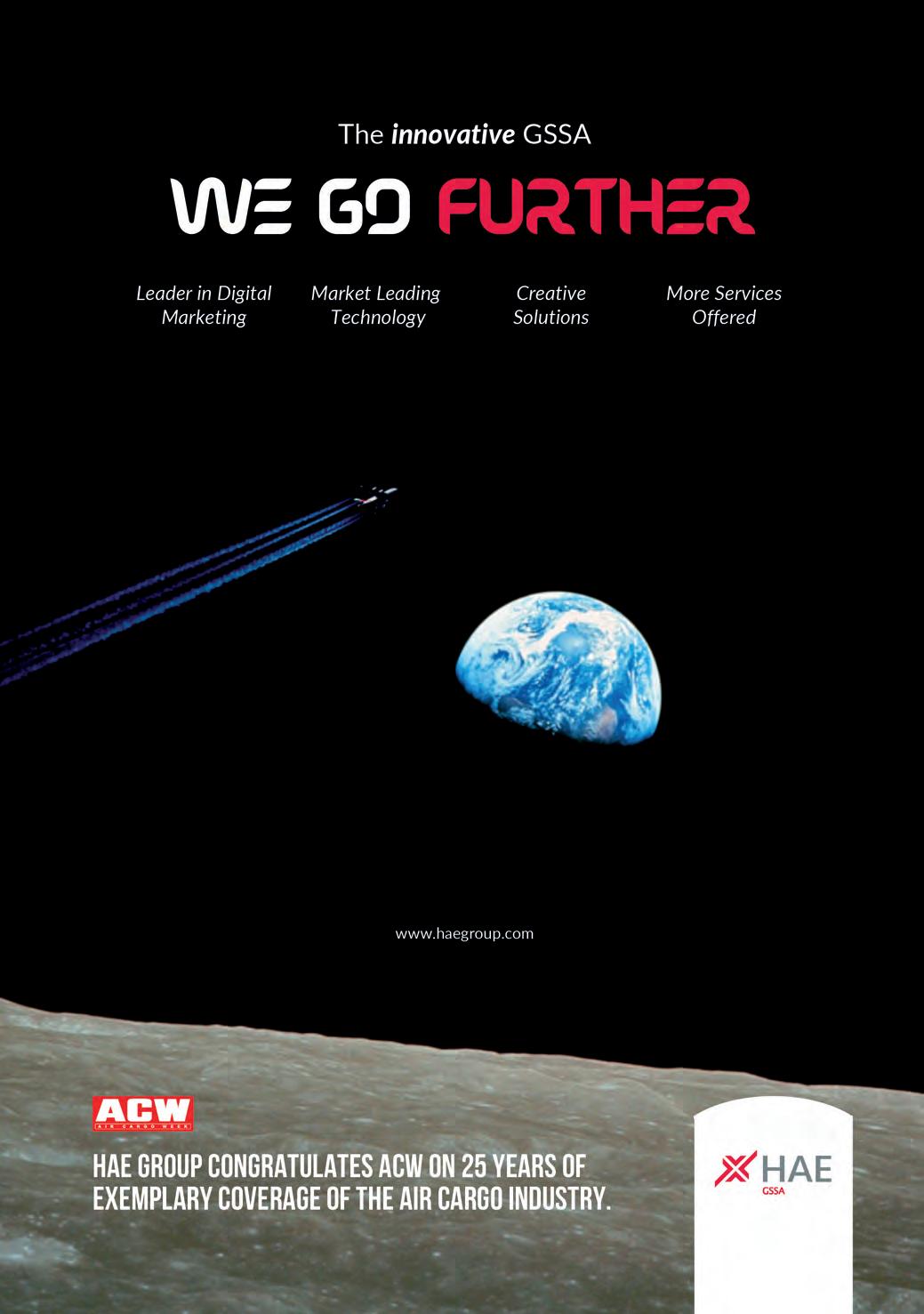
Bala is a consultant nowadays so works solo in his consultancy. He recalls he started in aviation in the 1970s. Asked if he can recall operating and business conditions in 1998, he says: “I can even take you earlier by another couple of decades! From the typewriter, teleprinter days referred to in my earlier response, the world progressed to ‘Word Star’ and then ‘Word Perfect’. During later 1990s, I still recall using faxes but not telex machines. E-mails were becoming well established by the day globally. The world of ‘attaching documents’ to email slowly raised its head if I remember correctly.
“The basics of business operation, indeed, have changed in my opinion. Not only have the modes of communication been changing constantly, it also has brought along with it sometimes glaring, often subtle yet significant changes to time, cost-efficiencies. I am tempted to quote my former boss, Ram Menen, whom the whole industry knows – previous generations were focussed on ‘manual’ operations, the future generations will be purely on ‘automated’ modes – we are the ones juggling both, transitioning from manual to automation. Talk about challenges – this is the mother of all challenges, not alone in identifying and adapting to new ways of business but adjusting the mindset every moment to meet and surpass expectations.”
In terms of world events over the last 25 years - 9/11, Iraq war, financial crash of 2008, Covid-19, war in Ukraine, oil price shock, global inflation in 2022 - which one does Bala think has had the most impact on airfreight?


He says: “I would certainly single out Covid-19. To substantiate this, none of the other events went to the extent of challenging ‘just in time’ concept to resort to ‘just in case’ nor catapulting ‘resilience’ to pre-eminent position over and above all other qualities of air cargo business to survive and grow.
The prevalent supply chains were made obsolete while new ones could not be established as a robust alternative, leaving most supply chains in a state of flux, managing the demand through daily innovations. I don’t think we have seen the world grow fully out of that stage.
“Every challenge brings abundant lessons for every stakeholder. Successful are and will be those who, not only just learn their lessons but build on them to anticipate higher challenges without looking surprised every time a calamity stares on our faces!”
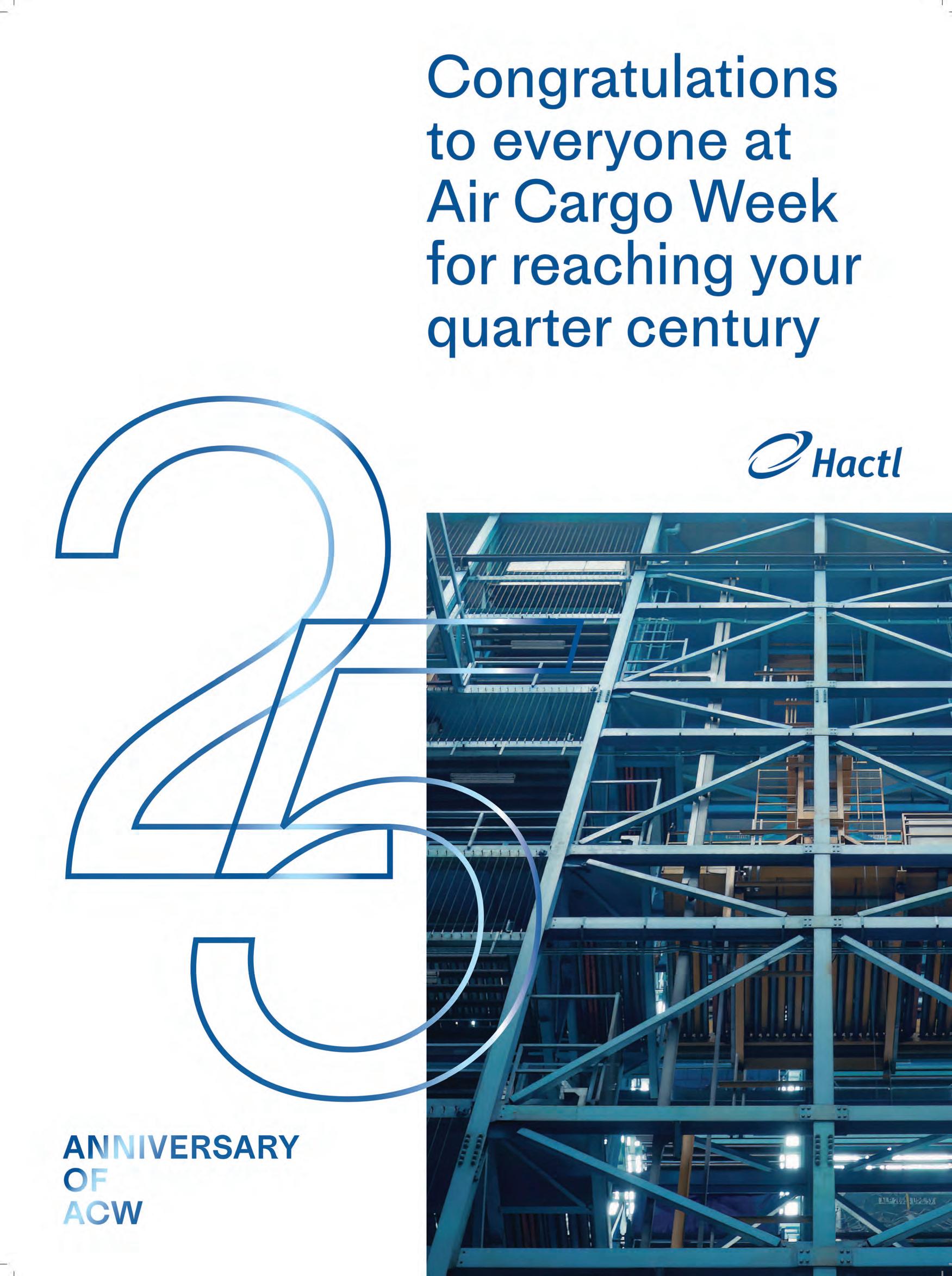
THE fact that Sebastiaan Scholte, CEO at Kales Airline Services, is intimately involved in Air Cargo Week could stem from the fact that he had just started in airfreight at the same time as the newspaper launched. He recalls: “I had just started working in Mexico City at Aeromexpress, which was the cargo division of Aeromexico and Mexicana. I was then responsible for Europe and moved that year to Madrid, where most of the sales were done by GSSAs.”

As his career took off, he became an avid reader: “From the beginning, ACW was always a very useful source for me to get updates on trends and the market. I am always interested in updates on companies, people, but also market trends.”
Five years ago, writing as TIACA chairman, Scholte headlined our 20th anniversary issue on the front page. He says: “I wrote an article on looking back and forward as chairman of TIACA in the 20th anniversary supplement. I looked back on who the top airlines were in 1998 and how the list has changed over the years and will undoubtedly change as well in the coming years.
“Cainiao and Amazon are indeed bigger players now than before and so are shipping companies entering the air cargo market. India will definitely grow as an air cargo powerhouse with so many aircraft on order with such a big catchment area. I predicted then that we will have at least two crises in the next 20 years, of which obviously COVID-19 was a big one that just happened. Looking forward technology and digitisation will further impact our industry just like the world will be more protectionist resulting in less global trade and air cargo volumes, also in part driven by demographic changes where in some major economies there will be population decline.”
He is pleased how staff from Day I have worked to make the newspaper the go-to read in the industry.
He says: “ACW reflects the global air cargo supply chain quite well. Also the supplements are very insightful and cover a wide range of topics and the global air cargo supply chain. Most of our employees read the trade press and, of course, ACW!”
What might he have done differently 25 years ago to how he would work now?
“Twenty-five years ago, I was not working for a GSSA but for Aeromexpress I was working with GSAs who sold the Aeromexico capacity ex Europe. I think digitisation has made a big impact, the RPA (Robotic Process Automation) solutions were obviously not possible 25 years ago. On the other hand personal relationships still matter, despite there is a lot more tender processes than before We definitely used faxes and telexes, but I recall I was already using a mobile, but not smart, phone, and email was already quite common.”
As a GSSA, “the basics are more or less still the same. An airline outsources its core sales activities to an independent GSSA
company. Trust in the relationship was and is still very important. Therefore personal relationships still matter today as they did 25 years ago. Twenty-five years it was a lot less common to start a tender process. Especially after the financial crisis, new corporate governance rules forced companies to openly tender more regularly, also because of cost cutting reasons.
“What also has changed is that GSSAs have consolidated in bigger groups now compared with 25 years ago. Airlines often prefer to have a ‘one stop shop’, also geographical, because it is easier and more efficient to manage. Obviously digitisation and automation has changed the industry landscape, with also more and more online booking platforms. Twenty-five years ago the total cargo management concept was a lot less developed and present than now. More shipping lines, e-commerce companies and forwarders are now getting their own capacity, mainly driven by liberalisation. A GSSA is the ideal partner to optimise idle capacity for them.
“Last but not least the environmental impact of our industry is a lot more present now than in 1998. Especially the young people rightfully are taking environmental considerations in their decision making process.”
Scholte says: “I always say the only certainty is uncertainty. There was no way that we could have predicted 9/11, the SARS crisis, COVID and other crises. At that time we were all afraid of the millennium bug that would cause all systems to stand still, which also never happened. At that time I was still confident of the relevance air cargo has for the world and it has proven to be even more relevant now. I am convinced that air cargo is here to stay. There will be geo-political and financial disruptions, but it will be cyclical. I also think that air cargo has been and is a commodity where demand and supply determine the price/ yield. This has been and will always be the case. All efficiencies in the air cargo supply chain have been passed on eventually to the end consumer.
“In 1998 we could already see the potential of the big data and the internet, but not AI, RPA and digital mobile solutions we currently have.”
In terms of world events over the last 25 years - 9/11, Iraq war, financial crash of 2008, Covid-19, war in Ukraine, oil price shock, global inflation in 2022 - which one did Scholte think has had the most impact on airfreight?

He considers “I think 9/11 did impact our industry most in a structural way, mainly on safety. All the other events are/ were cyclical and had a temporary effect on the economics. The antitrust case and the banking crisis had a big effect on the corporate governance of many companies and of course technology has impacted the industry as well, but still less in a disruptive way as other industries.”

“Last but not least the environmental impact of our industry is a lot more present now than in 1998”
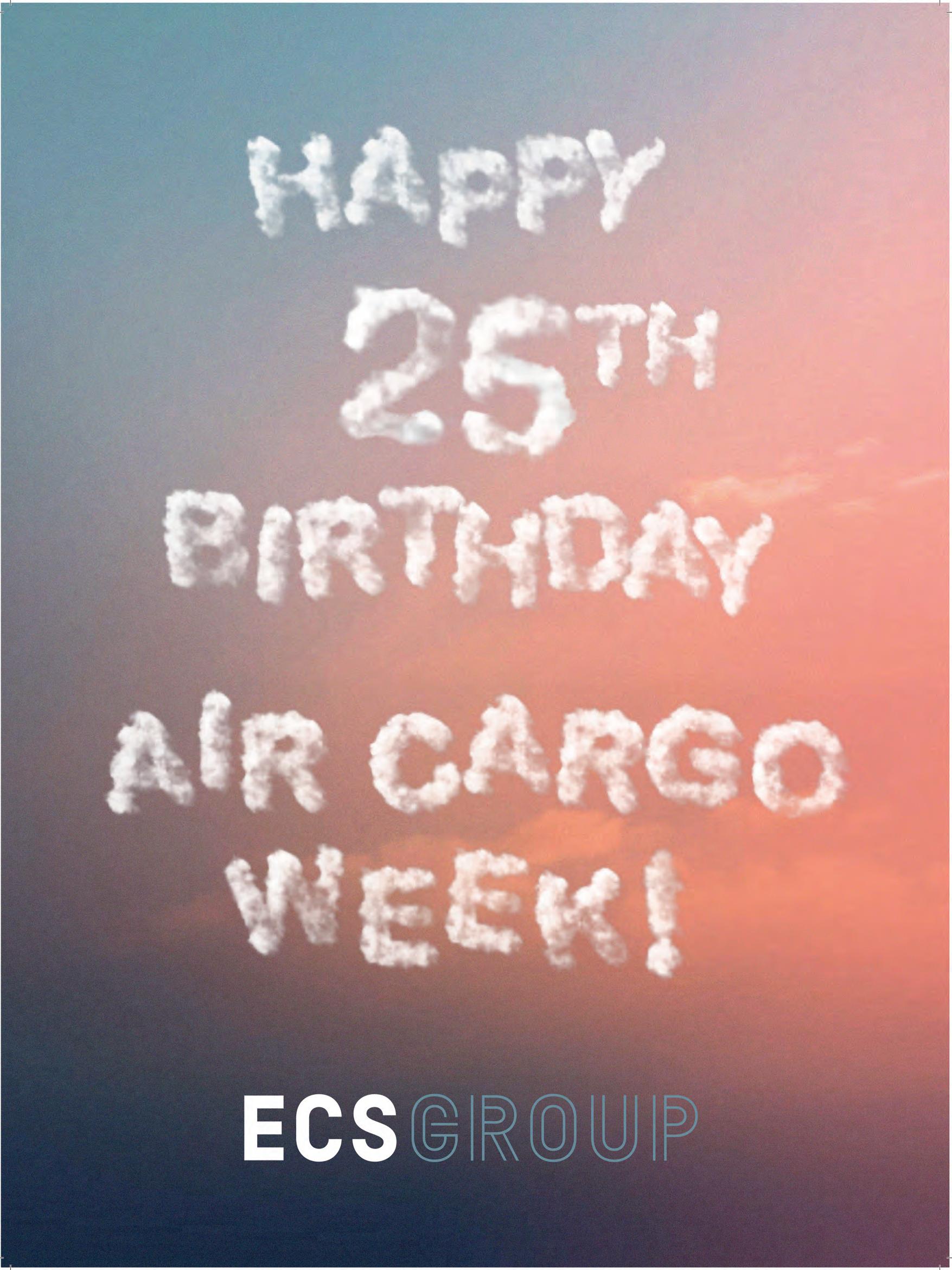
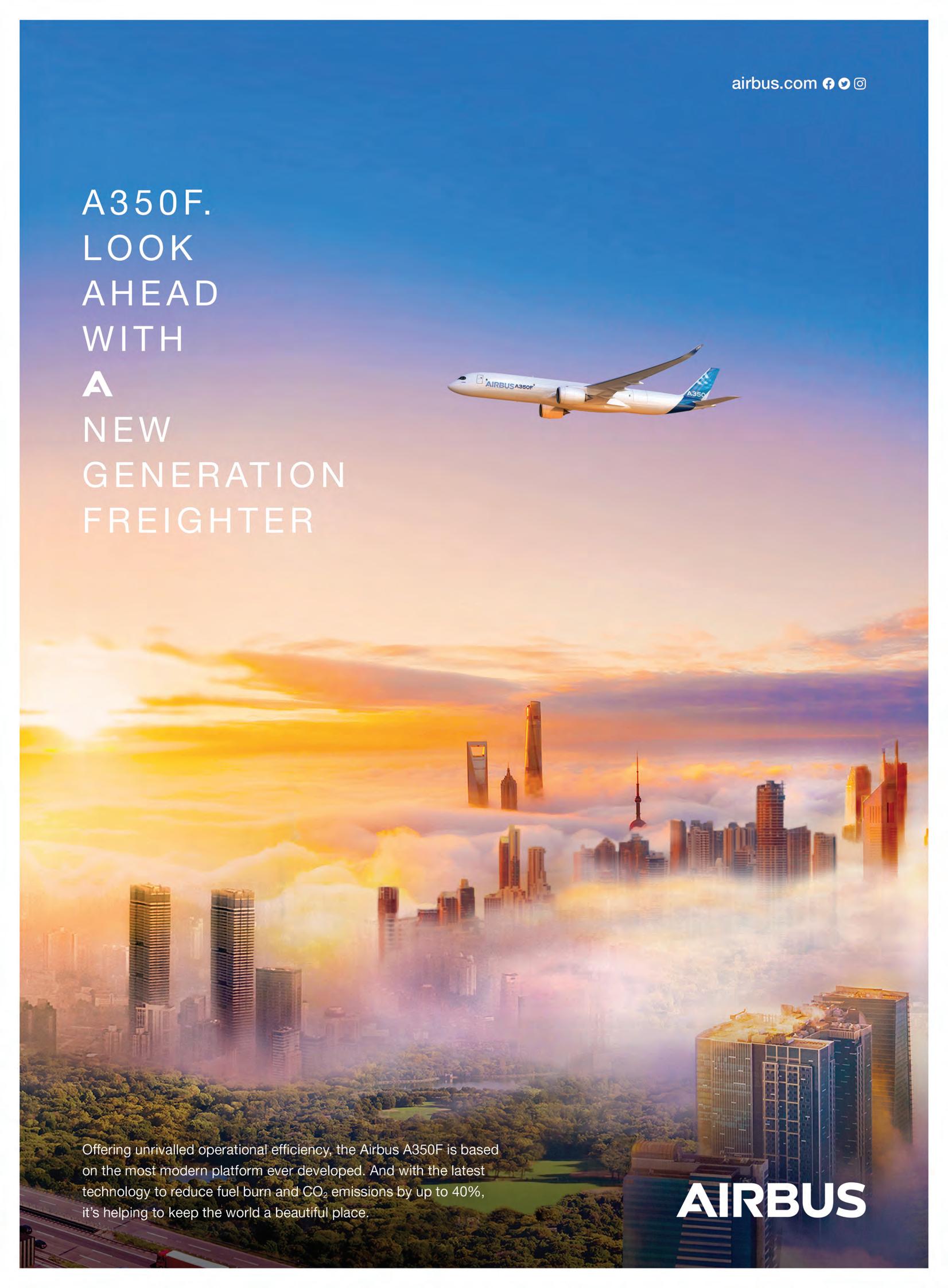
Twenty-five years ago, Neville Karai, now CEO of East Midlandsbased aviation solutions provider HAE Group, was an express operator in Asia selling general cargo on the company’s intraAsian network.

Karai has read ACW from the start and recalls: “In print, a week late due postage and one copy went round the office.” He enjoys reading the newspaper weekly as it has “been a useful reference point for what’s happening in our industry and where the next innovation comes from.
“I think it’s a good bulletin board for activity as there are many contributors. I think it would be useful for ACW to also reveal some of the SMEs in the industry and some of the local heroes we have out there.”
Looking back
Karai recalls how the airfreight business operated back in 1998. He says: “We had Nokia cell phones, with ‘Snake’ as the only recreational app. We texted people, not too often as it cost money. We used faxes for contracts and agreements, then couriered the originals; conference calls were an exotic way of joining multiple parties and all bookings were on spreadsheets.
“Spot pricing was referenced by people’s own weird ID sequencing and physical AWBs were the only verified control documents.”
In the 25 years since the launch, Karai considers that COVID19 has had the most impact on airfreight. He says: “COVID due to its long term supply versus demand impact. However, the resilience of this industry and its leaders is that 9/11 started it all and then we learned how to react, plan and forecast based on what happened in the last 25 years.
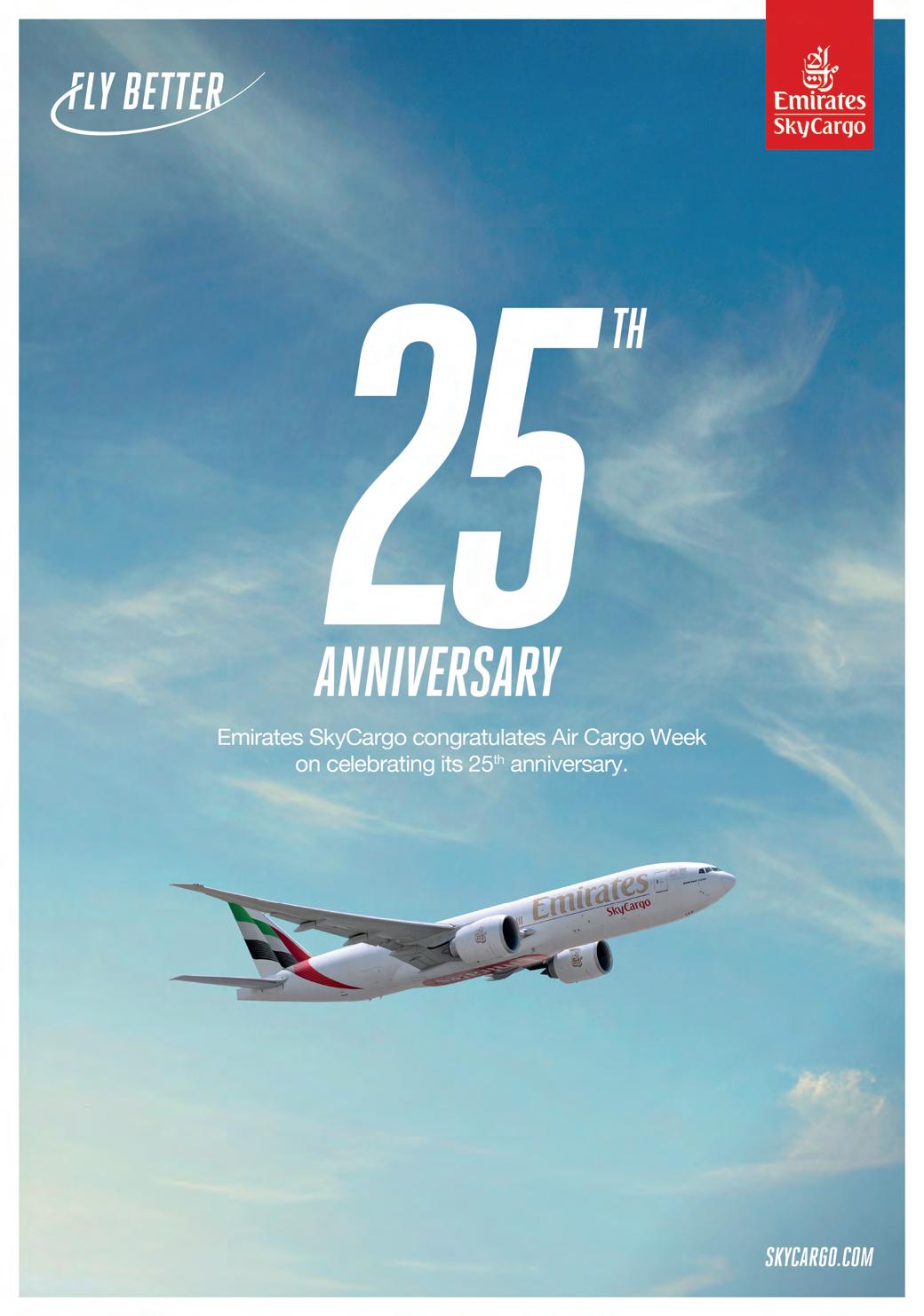
“Whilst we all talk and complain about digitalisation and how far we are behind, we should take a look back like this [milestone] and realise that in so many areas we have advanced and we just need to keep evolving!”
A none-too-serious look at a quarter century of Air Cargo Week
2 people associated with the debut issue in May 1998 still current members of staff
5 continents on which ACW is read
8 editors that steered the newspaper
24 pages in a typical issue
48 pages in the 1998 launch issue
175 countries in which ACW is read
300 months of publications since launch
1,250 issues since September, 1998


1998 The year in which ACW was launched
2008 ACW’s 10th anniversary
2013 ACW’s 15 anniversary
2018 ACW’s 20th anniversary
27,000+ news and feature pages
95,000+ news and feature stories
a two-year spell in the US Air Force, Delford M. Smith began his career as a commercial airplane and helicopter pilot. He founded Evergreen International Aviation with the idea that aircraft could be used as angels of mercy as well as industrial workhorses. Evergreen International Aviation reached 100 worldwide bases and more than 4,500 employees.
On 8 November 2013 Evergreen International Airlines, a subsidiary of Evergreen International Aviation, announced via a voicemail to its employees that all operations would cease effective 29 November 2013.
Klaus-Michael Kuehne
Klaus-Michael Kuehne was born in Hamburg in 1937, grandson of August Kuehne, one of the founders of the forwarding firm Kuehne + Nagel. He completed a banking apprenticeship, followed by training at forwarding and shipping companies, shipping agents and at the firm’s European and overseas branches. In 1963, he became a general partner in the company and two years later was appointed Chairman of the Management Board of the newly founded Kuehne + Nagel Speditions-AG. After his father’s retirement, he became CEO of the group and delegate to the board of directors of the holding company, Kuehne + Nagel International AG.
As the son of a pilot, Chris Leach has always had aviation in his blood. Starting out with Saturn Airways in the 1970s, he founded Air Charter Service in 1990 from the basement of his home in Kingston, London. His knowledge of the aviation market won him several key contracts for passenger and cargo flights with organisations such as the United Nations. Deciding never to take a bank loan, but instead to grow the business organically, Chris re-invested heavily in the business and grew it from its humble beginnings.
THE International Air Cargo Association (TIACA) opened its air cargo Hall of Fame the year before ACW was launched. It is a great record of 58 individuals who have made impactful and meaningful impressions on airfreight in its many forms.
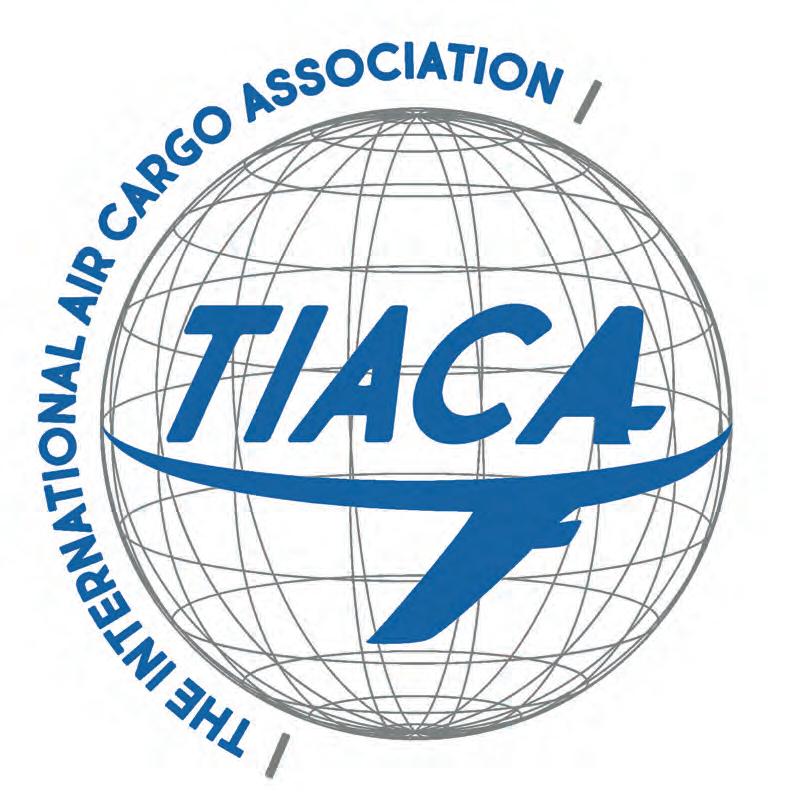
If you measure ACW milestones against the individuals inducted onto the list, you get an interesting taste of who is significant in the business. Given the longevity of the publication, it can almost be described as a generational shift in those of influence seen between the launch in 1998 and 2023.

Launch – 1998
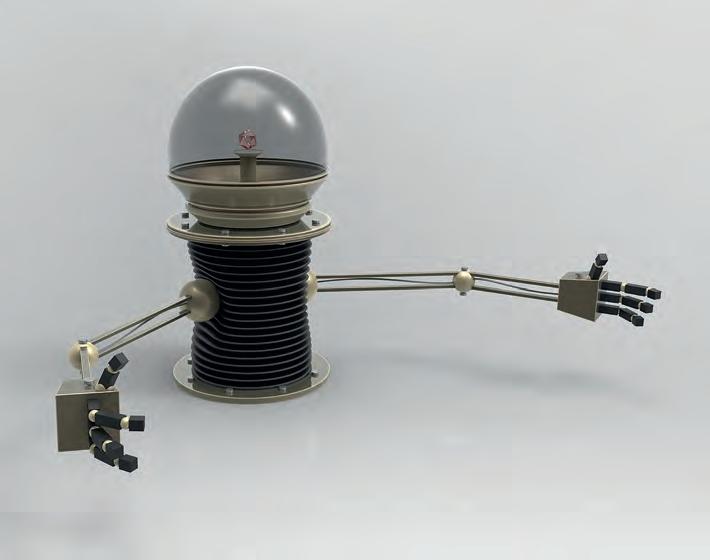
George Batchelor
Born in Oklahoma, George Batchelor graduated from the Aeronautical Institute of California and flew with the US Army Air Corps in World War II. He was closely tied to aviation with roles in management in aircraft, sales, leasing, finance, maintenance and airline operations. He owned several airlines including Arrow Air, a major air cargo carrier. His vision and activity played a major role in establishing Miami as one of the world-leading air cargo centres. His generous financial and personal support has benefited wildlife and the environment, provided medical services and facilities to children, assisted the homeless and needy and supported education and learning. Batchelor passed away in July 2002.
Joseph Berg
Joseph N Berg, began his cargo career as an ocean and air export agent with the Peter A. Bernacki Company in the early 1950’s. After college, he began working with Chester Mayer, the founder of AEI and soon became the AEI’s district manager in Philadelphia Pennsylvania and later became vice president of Europe, the Middle East and Africa. Hired by Circle Freight International in 1969, as executive vice president, he was responsible for the development of Europe, Africa, Australia, and a portion of the United States east of the Mississippi River.
Michael Chowdry
Born in Pakistan, Michael Chowdry, was educated at the University of Minnesota. His interest in the airline business started shortly after he emigrated to the US in the mid-1970s. Chowdry was chairman and president of Aeronautics Leasing, Inc. (ALI), a company he started in 1984 that leased passenger aircraft to airlines. He was latterly chairman, chief executive officer, and president of Atlas Air, Inc., an international air cargo company that he founded in 1992. He passed away on the 24th of January, 2001 in a plane crash.
Gerhard W. Fischer
Gerhard Fischer joined Panalpina in 1964 and served that company continuously from that dateuntil the late nineties. Early in his career he headed the growing airfreight division and subsequently became managing director of Air Sea Brokers, a Panalpina wholesale subsidiary. He became head of Panalpina’s subsidiary company in Nigeria and in 1986 returned to Basel as COO. He rapidly moved to president of the executive board and in 1995 to CEO and board chairman. In 1998 he relinquished the role of CEO and remained chairman of the board. Gerhard Fischer passed away on 27 August 2019.
Delford M Smith
Educated at the University of Washington, Salem College and Johnson and Wales College, with

So, you are sitting down in 2048, wondering where the quarter century since you celebrated the 25th anniversary of Air Cargo Week has gone, and thinking back on how airfreight and the newspaper has changed in that time.
Naturally you are reading this on a device as the printed version is long gone. You’ve just two years before the global 2050 carbon neutrality target that your grandparents planned for. Arguably the main purpose of airfreight has remained the same: the transport of goods quickly by air. It is how this function is performed that has changed the most over the last twenty-five years.
Digitalisation and AI, blockchain and automation has carved out large swathes of middle staff. Warehouses the size of small towns are operated by few individuals in the flesh. So you are lucky to have a role in airfreight. Even in the air, pilotless aircraft, sometime just enormous drones, mean the pilot shortage of the 2020s has been solved.
As 2050 approached, pressure from environmentalists has challenged those who fly perishables and foodstuffs across the world. The industry has replied by the intensive use of Sustainable Aviation Fuel. What has caught the industry by surprise has been how changes brought by global warming have created new sources of the fresh fruit and vegetables carried in 2023 while traditional sources have dried up. What used to be lifted out of Africa and Colombia, now comes from Finland and Denmark.
Many of Air Cargo Week’s readers in 2023 will have retired by now while many school children and university students facing their exams 25 years ago have joined the industry. The gender balance is now decidedly 50:50.
As you close the device, one can only imagine airfreight in 2073.
